About the Alumni Achievement Award
Presented annually by the SVM, the Alumni Achievement Award is the highest honor bestowed by the school. One or more alumni are honored each year for outstanding personal and professional contributions to veterinary science or one of its branches, veterinary practice, or service to humankind and the advancement of human welfare.
2025 Recipients
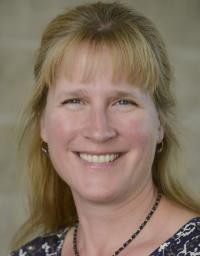
Dori Borjesson DVM ’95, MPVM ’95, Residency in Pathology ’99, Ph.D. ’02
Dr. Dori Borjesson is being recognized for her administrative leadership and innovation in diagnostic veterinary medicine. Dr. Borjesson is the Dean of the College of Veterinary Medicine at Washington State University (WSU). Prior to moving to the Palouse, she served as a Professor and Department Chair in the School of Veterinary Medicine, Pathology, Microbiology and Immunology Department at UC Davis. She earned her DVM, MPVM and PhD degrees from the University of California, Davis and completed a residency in Clinical pathology also at UC Davis. At UC Davis, she was the inaugural Director of the Veterinary Institute for Regenerative Cures.
During her career she has taught professional veterinary and graduate students, engaged in clinical service for academic teaching hospitals, and led a graduate program in integrative pathobiology. Her research focused on stem cells and how they interact with the immune system. Her team defined and developed naturally-occurring animal models of disease to test cell therapies to improve animal health and inform human medical practice. She has over 115 peer-reviewed publications and has been the recipient of the Zoetis Research Excellence award. At WSU, Dean Dori has focused on expanding research with impact, advancing teaching that matters and enhancing veterinary professional well-being. She has expanded initiatives focused on inclusion, student success and community building at the college. She has led programmatic investment in a paraprofessional program and a new undergraduate degree program in public health. She has developed a solid leadership team and, through mentorship and engagement, has established new leaders in the college. She has focused on faculty recruitment and retention to sustain academic teaching hospital excellence.
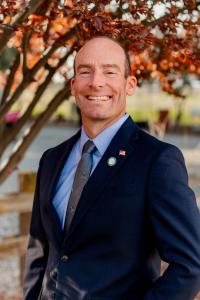
Mike Karle DVM ’99
Dr. Mike Karle is being recognized for his outstanding service to the UC Davis School of Veterinary Medicine, to food animal medicine and rural practice, to supporting youth in agriculture, and to organized veterinary medicine in the State of California. Dr. Karle graduated from the UC Davis School of Veterinary Medicine in 1999 following his undergraduate work in the Animal Science Department. One week after graduation, he married his wife Betsy, then moved to Tulare for two years and practiced at Tule River Veterinary Services, a 100% dairy practice. In 2001, he moved to Orland and joined Mid-Valley Veterinary Hospital, eventually buying into the mixed animal practice in 2004. On Sept. 1, 2013, he purchased the practice as a sole owner. The hospital is currently a four-doctor mixed animal practice helping rural communities in northern California with small animal and food-animal medical services.
He enjoys being a mixed animal veterinarian but is devoted to food animal medicine. He enjoys large herd work and loves embryo transfer and Assisted Reproductive Technologies in small ruminants. Dr. Karle enjoys mentoring undergraduates at Chico State and veterinary students from veterinary schools and participating in 4-H and FFA programs to promote animal health and veterinary medicine. He currently sits on the CDFA’s Cattle Health Advisory Task Force.
Dr. Karle is heavily involved with organized veterinary medicine. He has served the California Veterinary Medical Association (CVMA) as a Board of Governor’s member, President, Agriculture Committee Chair, and Legislative Committee member. Dr. Karle currently serves the CVMA on several other committees and in an advisory capacity. He is also the American Association of Bovine Practitioner’s representative to the American Veterinary Medical Association’s Legislative Advisory Committee.
Serving his alma mater, he completed two terms on the School of Veterinary Medicine’s Admission Committee and currently serves on the Center for Food Animal Health Stakeholder Committee. He has given numerous presentations to students in the FARM Club and the Veterinary Business Management Association club.
When not involved with veterinary medicine, Dr. Karle can be found participating as school board president of a local school board, spending time with his family, working in his shop or around the house, serving as a Range Safety Officer at the local shooting range, and spending time outdoors hiking, hunting and fishing.
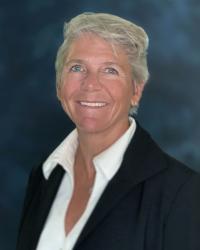
Julie Smith DVM ’92
Dr. Julie Smith is being recognized for excellence through her efforts as a surgeon, educator, managing partner, advocate, and philanthropist. Dr. Smith graduated from UC Berkeley in 1988 and from UC Davis School of Veterinary Medicine in 1992. She went on to do an internship at North Carolina State University, and then a residency in surgery at the University of Georgia. She was an associate professor at Kansas State University in soft-tissue surgery prior to starting as an Associate Surgeon for Veterinary Surgical Associates (VSA) in 1997 – which later became SAGE Veterinary Centers in the San Francisco Bay Area. Julie became board-certified in surgery in 1997 and one of the practice owners in 1999.
Julie became a Managing Partner for SAGE Veterinary Centers in 2010 and received an MBA from Saint Mary’s College in 2013. She served as Managing Partner and Medical Director from 2013 to 2018. She was responsible for recruiting and hiring highly skilled veterinary specialists to join the SAGE team and led the practice growth from 25 doctors to over 80 doctors. In 2018 after securing an external investor, Julie became a SAGE Veterinary Centers Board Member and worked directly with the executive and leadership teams as Chief Strategy Officer to chart the course of growth across SAGE’s state-of-the-art veterinary hospitals. She retired from SAGE Veterinary Centers in 2022 after a 25-year career.
In 2019 Julie began work to form Sage Compassion for Animals (SageC4A). She was able to bring together a stellar Board of Directors from the San Francisco Bay Area community that brings a wealth of experience and diversity that did a tremendous job of getting the non-profit up and running during COVID-19. SageC4A strives to prevent suffering and euthanasia by providing financial assistance to families with companion animals in medical crisis. She served as Executive Director for the first 4 years and now continues on as a Founder and Board Member.
Julie received her certification in coaching from the Hudson Institute of Coaching in 2023 and provides career and leadership coaching to individuals.
Julie serves as the Treasurer for the American College of Veterinary Surgeons (ACVS) and was a founding Board Member and Past President of the Collaborative Care Coalition. Julie served on the AVMA’s Veterinary Economic Strategy Committee (VESC) from 2019 until 2025, was Chair of the committee her last 2 years, where she assists in advising the AVMA Board on the scope of economic issues affecting veterinary medicine. In 2017 Julie was recognized for the impact she has made within the veterinary services industry and received the annual Silicon Valley Business Journal – Women of Influence Award.
Julie was proud to help raise $100,000 for the UC Davis School of Veterinary Medicine Class of 1992 – VMTH Facilities and Equipment Fund and served on the 20th and 30th Reunion Committees. She is working now on a campaign with her classmates to fund a new LED lighting system for the VMTH. She also serves on the Leadership Council for the Positive Coaching Alliance in support of improving youth sports culture and increasing sport equity in under-resourced communities.
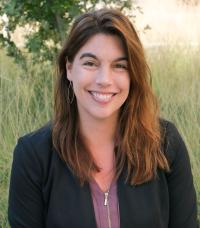
Woutrina Smith DVM ’01, MPVM ’01, Ph.D. ’04
Dr. Woutrina Smith is recognized for being a Globally-engaged veterinary leader improving animal, human, and planetary health; putting environmental epidemiology and One Health to work for health equity.
Dr. Smith leads the multicampus UCGHI Planetary Health Center of Expertise and has been part of the UCD School of Veterinary Medicine’s One Health Institute since its inception. Originally from Alaska, Dr. Smith studied at Pomona College in Los Angeles, at School for Field Studies in Australia, and at UC Davis on her way to becoming a Professor of Infectious Disease Epidemiology. Dr. Smith has One Health research projects in Africa and Asia, as well as in California, where multidisciplinary teams work together to solve complex population and planetary health problems in innovative ways. She currently leads the USAID One Health Workforce – Next Generation Project which is active in countries across Africa and Southeast Asia. Dr. Smith has taught about the One Health approach in the professional, graduate, and undergraduate programs at UC Davis over the past 20 years. Dr. Smith has received funding from diverse sources including the National Institutes of Health, the US Agency for International Development, the US Department of Defense, and the Bill & Melinda Gates Foundation to support her research and training endeavors.
Previous Alumni Achievement Award Recipients
- 2024
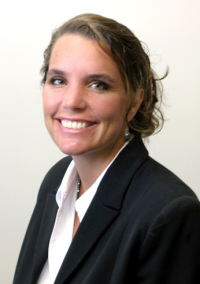
Annette Jones DVM (’98)
Dr. Jones is recognized for outstanding contributions to enhancing animal health emergency management policies and programs, and for successfully leading multiple disease eradication efforts. Dr. Jones received a BA (’86) from UC Davis before her DVM. She serves as the State Veterinarian and Director, Animal Health and Food Safety Services (AHFSS), California Department of Food & Agriculture (CDFA). Throughout her career, she has been instrumental in developing and implementing improved strategies, policies and programs to detect and eradicate catastrophic foreign animal diseases. After three years in private mixed animal practice, Dr. Jones joined the Animal Health Branch of CDFA in 2001. With a unique background in business and finance before veterinary school, and innate communication and people skills, Dr. Jones was quickly recognized for her leadership capabilities. She was appointed as the Co-Incident/Area Commander of the 2002-03 Exotic Newcastle Disease (END) Eradication Program, the largest emergency disease eradication effort to date in the United States. Dr. Jones was appointed State Veterinarian for California in 2010, responsible for policy development and emergency response for the largest agricultural economy in the nation. She has developed excellent working relationships with academic and animal industry partners. Under her leadership, her team has developed or updated policies and response programs for highly pathogenic avian influenza leading the successful eradication effort in 2015; and the successful eradication once again of Virulent Newcastle Disease in 2020.
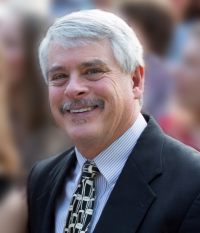
Dan Lewis DVM (‘83)
Dr. Lewis is recognized for distinguished service to the veterinary profession through innovations in clinical orthopedic research, passionate teaching, and purposeful mentorship. Dr. Lewis also received a BS (’79) from UC Davis. He has influenced thousands of veterinary students, veterinary interns, and residents, mentored and coached faculty, many of whom are now considered leaders in the specialty of veterinary orthopedic medicine. Dr. Lewis has a sustained history of educating and giving back to the veterinary profession, through continuing education, leadership in professional organizations, or mentoring academic surgeons. As Professor & Eminent Scholar & Chair, and Orthopedic Surgery Service Chief at University of Florida, he is a wonderful, caring, human being to his trainees, colleagues, family, friends, and acquaintances. He has touched many lives within his career and he loves reflecting on how his time at UC Davis set the path for his successful future.
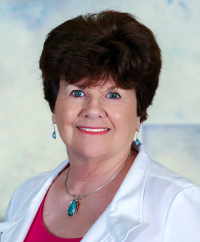
Susan White DVM (’73)
Dr. White is honored for exemplary service to equine veterinary medicine and veterinary education. Dr. White also completed a BS (’71) at UC Davis. She has served the veterinary profession with dedication and excellence over the last fifty years. In an era when women were not only a minority in veterinary medicine, but essentially nonexistent in large animal veterinary medicine, Dr. White was a pioneer. Through the education of veterinarians worldwide and her pivotal roles in the early years of the American College of Veterinary Internal Medicine (ACVIM) and the American Association of Equine Practitioners (AAEP), Dr. White brought large animal internal medicine to thousands of veterinarians. She played a pivotal role in the original research that led to the establishment of the Fédération Equestre Internationale (FEI) rules for equestrian competitions. After her 2006 “retirement”, Dr. White received the ACVIM Robert W. Kirk Award for Professional Excellence, served as ACVIM President, and on the AAEP Board of Directors. Recipient of the AAEP’s Distinguished Service Award, AAEP Distinguished Lifetime Member Award, and an AAEP My Mentor Honoree, Dr. White continues to provide world class continuing education.
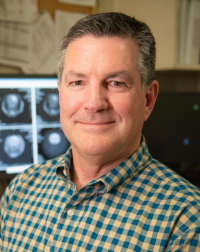
Erik Wisner, DVM (’83), Diagnostic Imaging Residency (’92)
Dr. Wisner is recognized for advancing the specialty of veterinary diagnostic imaging and for his administrative leadership. He has been a pillar of the veterinary diagnostic imaging community throughout his career, contributing to development of new research, embracing new technology, and advancing development of the diagnostic imaging residency training program. He is one of the most respected and accomplished radiologists in the world with an international reach and impact. Dr. Wisner began his career with a joint appointment with the School of Medicine (Radiology) and School of Veterinary Medicine (1992-1997; 2001-2020). He brought helical CT (2001), high field MRI (2002), and the first PACS to the VMTH. His vision for the future of cross-sectional and digital imaging ensured UC Davis was on the forefront of advancing diagnostic imaging. Dr. Wisner advanced clinical and comparative medicine by bridging the SVM, SOM and Biomedical Engineering. He served as the Cancer Center Director of the Animal Imaging Shared Resource, and was the inaugural Director of the Veterinary Center for Clinical Trials. He served as Associate Hospital Director for Imaging Services (2004-2019), and oversaw the significant changes and complexities with managing a large number of imaging modalities. Dr. Wisner remains creative and collegial in finding ways to better serve the community and the VMTH, including overseeing design and construction of the All Species Imaging Facility.
- 2023
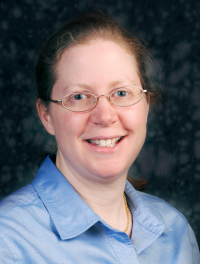
Kate Hopper, Small Animal Emergency and Critical Care Residency (’02), Ph.D. (’07)
Dr. Hopper receives an Alumni Achievement award for outstanding scholarship in companion animal emergency and critical care; and inspired administrative leadership of the Veterinary Medical Teaching Hospital. Recipient of the 2023 Ira M. Zaslow Distinguished Service Award of the Veterinary Emergency and Critical Care Society and the 2019 School’s Faculty Distinguished Teaching award, Dr. Hopper is a ‘global’ tour de force in veterinary emergency and critical care who continues to have an indelible impact on the evolution of the discipline of veterinary critical care through her altruistic leadership, commi
tment to teaching and experiential training, and clinical scholarship. With seemingly indefatigable energy, infectious enthusiasm, and healthy pragmatism layered over unquestioned dedication to the clinical enterprise, Dr. Hopper’s leadership of the Small Animal Hospital and the Veterinary Medical Teaching Hospital continues to be transformative, enhancing the school’s reputation.th and advancing community-based conservation and animal welfare globally.
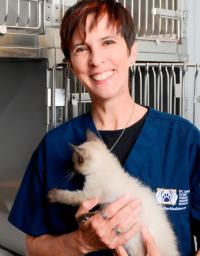
Kate Hurley, DVM (’99), MPVM (’03), Shelter Medicine Residency (’03)
Dr. Hurley is recognized for courage and unshakable vision, succeeding in saving millions of animals by elevating expectations and providing excellence in Shelter Medicine. The specialty of Shelter Medicine was born at the UC Davis School of Veterinary Medicine through the vision of Dr. Hurley, three-time alumna, including as the inaugural Shelter Medicine Resident. Soft spoken, humble, powerful, and a generous colleague, Dr. Hurley has advocated, initiated, and heralded permanent new expectations (globally) to raise every possible facet of care for sheltered animals. She co-authored the first shelter-specific vaccine guidelines for dogs and cats, emphasizing the crucial differences in care needs for sheltered versus pet populations. Dr. Hurley has shown the courage to champion entirely new expectations for sheltered animals and those who care for them. She has generously, and genuinely devoted her personal and professional life to the mental and physical welfare of animals, and to the humans that care for them. Dr. Hurley is a rock-solid visionary who has elevated Shelter Medicine education, research, and care.
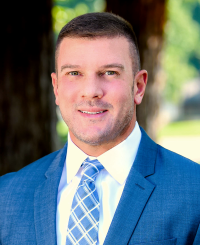
Grant Miller, DVM (’04)
Dr. Miller is honored for outstanding leadership in equine welfare, disaster preparedness and response, and support of the veterinary profession in California. Just short of two decades since graduating, Dr. Miller has had an indelible impact on the veterinary profession in California, indeed nationally and internationally. After completing a BS (Animal Science – Equine emphasis) at UC Davis, Dr. Miller obtained a DVM with a Large Animal emphasis. His continuing efforts directed toward equine welfare have resulted in speaking invitations, nationally and internationally, on themes including starting volunteer organizations; care and management practices; the role of the veterinarian in equine abuse cases; forensic investigation of an equine crime; and on being an effective expert witness. Dr. Miller has had an abiding commitment to animal welfare in natural disasters and has been instrumental in developing and implementing training and response plans, and facilitating preparedness of California counties for emergencies. Dr. Miller has shown a keen interest in organized veterinary medicine and public policy since he was a veterinary student, and was the first veterinary student intern for the California Veterinary Medical Association (CVMA). Dr. Miller’s passion for public policy expanded his role within CVMA, and he is tireless in his efforts to address regulatory and legislative issues that impact veterinarians and the practice of veterinary medicine in California.
- 2022

Jeffrey Boehm DVM '90
Dr. Boehm receives this award for outstanding contributions to improving the health of aquatic animals while considering aquatic populations and addressing welfare through enduring programs. Dr. Boehm is Chief Executive Officer of the Marine Mammal Center, the world’s largest marine mammal hospital, leading a vibrant dedicated community operating out of 4 sites on the California coastline and in Hawaii. A founding Diplomate and past president of the American College of Animal Welfare, he was the 2021 recipient of the American Veterinary Medical Association Animal Welfare Award. Initially, after graduation, Dr. Boehm was a veterinarian for the Los Angeles Zoo, then for 17 years led a diverse professional management team at the Shedd Aquarium in Chicago as Senior Vice President and Louis Family Conservation Chair before appointment at the Marine Mammal Center. Throughout his career, Dr. Boehm has overseen the development and refinement of numerous veterinary protocols, procedures, and techniques to advance the humane care and welfare of aquatic species and also of individual marine mammals in distress. Dr. Boehm has been a champion for the conservation and welfare of marine mammals and the survival of critically endangered species while concurrently improving public and policy maker understanding of the importance of aquatic ecosystem health and advancing community-based conservation and animal welfare globally.

Laurel Gershwin BS '69, DVM '71, Ph.D. '79
Dr. Gershwin is recognized for extraordinary contributions to sustaining animal health with an emphasis on facilitating care for pets of those otherwise unable to access or afford veterinary services. A board-certified veterinary microbiologist and Distinguished Professor emeritus of Immunology, Dr. Gershwin served on our faculty for 44 years. A former department chair, acting associate dean for research, and service chief, Dr. Gershwin had a primary research focus on the immunopathology of viral pathogen/host interaction, studying bovine respiratory syncytial virus (RSV) in calves, an important disease in cattle, and also as a model for human RSV, an important pediatric disease, as well as studying the immunology of allergy and airway hypersensitivity. She was recognized with the School’s Excellence in Animal Health Research award and the American Association of Veterinary Immunologists Distinguished Veterinary Immunologist award. In 1996, Dr. Gershwin was the founding faculty advisor for the monthly Mercer Clinic for Pets of the Homeless in the Sacramento region and she has had a sustained presence with this program since its inception. Dr. Gershwin is also a volunteer veterinarian for the One Health Clinic for pets of low-income migrant workers in Knight's Landing. In these settings, Dr. Gershwin provides important clinical practice guidance for veterinary students in indigent settings, increasing student awareness of multicultural and socioeconomic aspects of the delivery of veterinary services that is not replicated in their clinical training through our teaching hospital. This award recognizes her leadership, inspirational passion, and sustained support of the Mercer Clinic for more than 25 years.
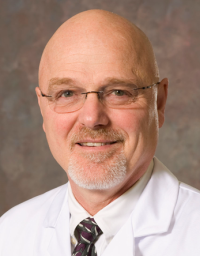
Christopher Murphy, BS ’78, DVM ’83, Ph.D. '84 Comparative Ophthalmology Resident UCD '84-'87, SOM Cornea Fellow UCD ‘87-‘89
Dr. Murphy is honored for his distinctive leadership and professional contributions to comparative ophthalmology and vision science, and the relentless support of his trainees. After completing an ophthalmology residency, Dr. Murphy became the first Corneal Fellow in the UC Davis School of Medicine. Distinguished Professor Emeritus of the Schools of Medicine and Veterinary Medicine, Dr. Murphy has been a champion of comparative and translational vision science research, with a primary focus on corneal disease - in particular corneal healing. A board-certified veterinary ophthalmologist with a bibliography exceeding 300 publications, Dr. Murphy has been recognized with many awards including the Cello, Schalm, Ramsey, and Dobbs Lectureships, the Society of Toxicology Career Achievement Award in Ocular Toxicology, the Pfizer Excellence in Research Award, and the American Veterinary Medical Association Lifetime Career Achievement Award in Research. His research has been continuously funded by the National Institutes of Health National Eye Institute and he has made substantial contributions to the fields of comparative ophthalmology, visual optics, bioengineering, biomaterials, and translational therapeutics. As founder, CEO, and managing member of a number of entrepreneurial companies including Ocular Services On Demand (OSOD), Dr. Murphy has assisted in bringing many ocular therapeutics to market as treatments for challenging ophthalmic conditions including age-related macular degeneration (Lucentis®, EYELEA®) and dry eye disease (Xiidra®). His enduring commitment to impactful translational research and his multidisciplinary, collaborative approach has served as a model for his colleagues and an inspiration for his trainees. His impact in veterinary and human ophthalmology, as well as vision science writ large is a direct result of his advanced clinical and surgical skills, infectious teaching style, research achievements, creative entrepreneurial ventures, and - above all - the tireless support he provides his trainees.
- 2021
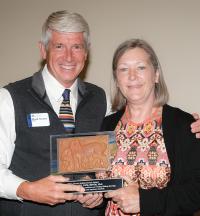
Dale Moore, MS, DVM, MPVM, Ph.D.
Dr. Moore receives this award for her outstanding contributions in preventive medicine and creating lifelong learning opportunities for veterinarians and veterinary students. Throughout her career, Dr. Moore has developed unique programs of extension that blend research, outreach, and continuing education. She has focused on preventive medicine for livestock populations resulting in practical approaches for dairy cow and calf health and well-being as well as testing new methods to identify audience learning needs and educational programs resulting in a better understanding of agricultural animal health audiences.
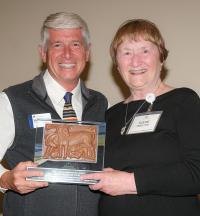
G. Diane Shelton, DVM, PhD.
Dr. Shelton is recognized for her extraordinary contributions to One Health through investigations of neuromuscular disorders of animals and identification of spontaneous models for human diseases. At UC San Diego, Dr. Shelton established and directs the Comparative Neuromuscular Laboratory, an international reference center for spontaneously occurring neuromuscular diseases. A leader in her field, her reference center provides state of the art diagnostic and collaborative research opportunities that are used by the majority of North American veterinarians and around the world.
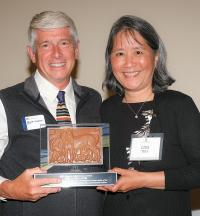
Lisa Tell, DVM
Dr. Tell is honored for her distinctive leadership and professional contributions to ensure safety of the US food supply, hummingbird health and conservation, and of faculty welfare. As an ambassador of the UC Davis School of Veterinary Medicine, Dr. Tell has a passion for improving the health and welfare of animals and humans through her remarkable achievements in hummingbird research and conservation, safe use of drugs in food producing animals, and service to the University via work life and career advancement committees.
- 2020
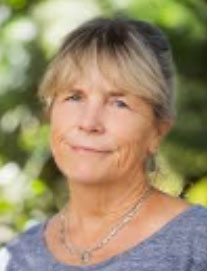 Noel Dybdal, DVM, PhD.
Noel Dybdal, DVM, PhD.Dr. Dybdal receives this award for outstanding contributions to biomedical safety assessment, human health, training in veterinary and toxicological pathology, animal welfare, and disaster response. As a veterinary pathologist, Dybdal is recognized for her expertise in the areas of drug development and animal use in pharmacologic and biomedical research. She has been a member of the California Veterinary Medical Reserve Corps since 2009.
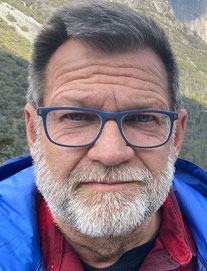 Ken Gorczyca, DVM
Ken Gorczyca, DVMDr. Gorczyca is honored for advancing the human-animal bond while working tirelessly to build a more inclusive and stronger veterinary profession. He is a founding volunteer veterinarian and education director for Pets are Wonderful Support (PAWS)—an organization founded to provide supplies and care for pets belonging to low-income people with HIV/AIDS. Gorczyca is also a founding member of the Lesbian and Gay Veterinary Medical Association (LGVMA).
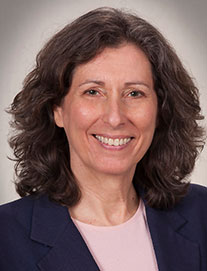 Katrin Hinrichs, DVM, PhD.
Katrin Hinrichs, DVM, PhD.Dr. Hinrichs is recognized for her expertise as a clinician-scientist and reproductive biologist exemplifying all attributes of a true academician—dedicated to discovery, education and improving patient care. She is considered to be an international authority in equine reproduction. Her pioneering work in the development, application and use of innovative procedures for oocyte management, storage, transport, survival and viability changed the way equine reproduction is practiced worldwide.
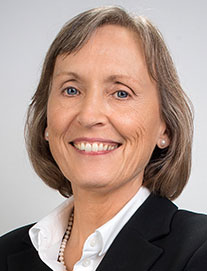 Sheila Laverty, MVB
Sheila Laverty, MVBAs a clinician-researcher, Laverty is recognized as a leader, role model, mentor and teacher for female clinician-scientists in orthopedic research, and equine surgeons, graduate and undergraduate veterinarians. She has contributed abundant knowledge to the field of equine joint disease through her work with the Comparative Orthopaedic Research Laboratory she created in 1994. Her interest and dedication to joint disease research stemmed from her first research project on tarsal osteoarthritis in horses as a surgery resident working in the internationally renowned JD Wheat Orthopaedic Research Laboratory at UC Davis.
- 2019
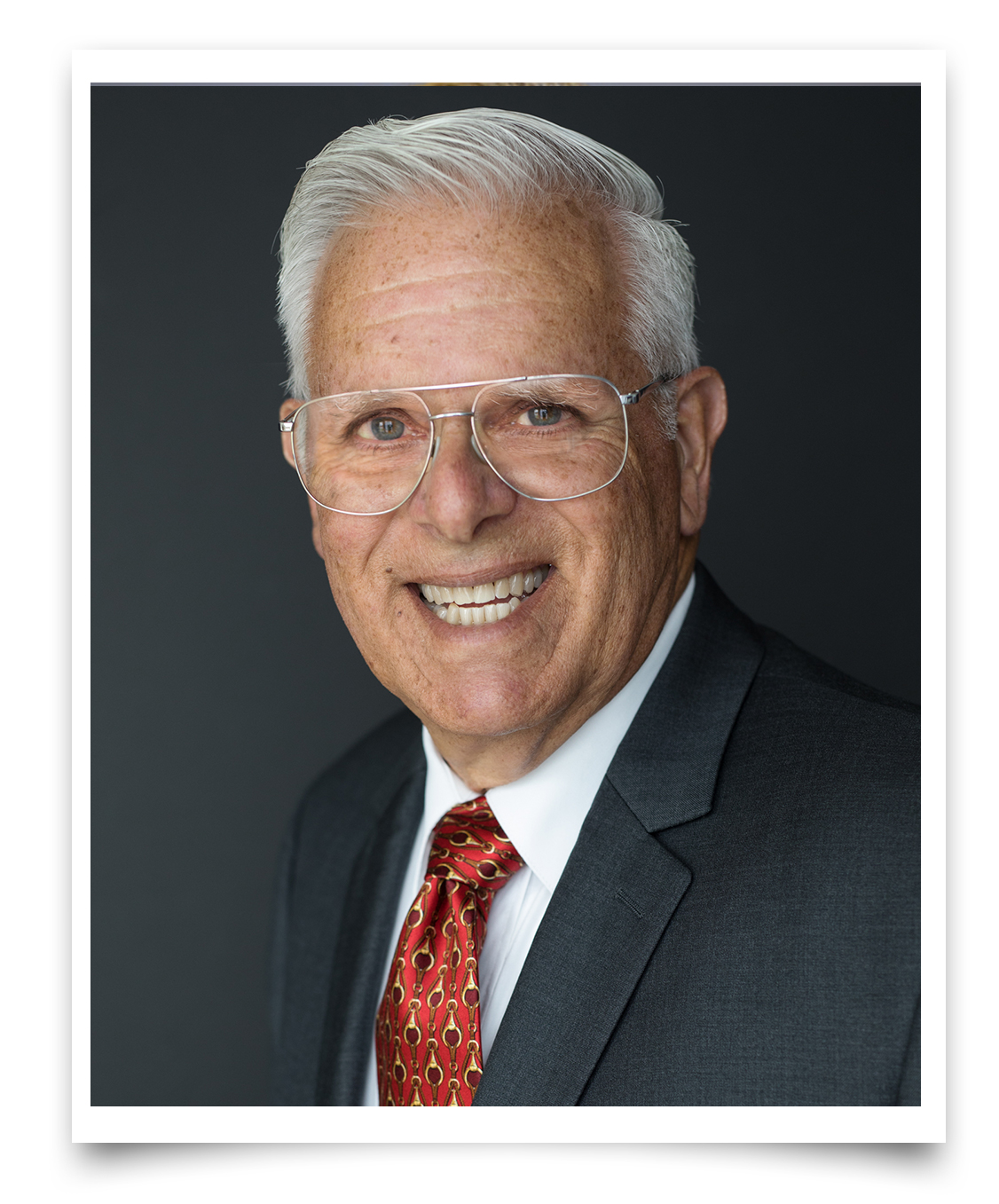
Gregg Cutler, DVM, MPVM; Principal, Cutler Associates
Dr. Cutler receives this award in recognition of leadership and dedication to protecting the health and safety of poultry in California, the United States and internationally. Since 1988, he has been the principal owner of Cutler Associates, through which he has advanced poultry health, management and food safety in all major segments of the domestic and international poultry industries.
Raised in the poultry industry in Southern California, Gregg entered the UC Davis DVM program with a passion for avian medicine. He received his DVM in 1974, completed a residency in Avian Medicine in 1977, and an MPVM in 1978. For nearly 40 years, Cutler has served the commercial poultry industry in various capacities. Cutler Associates serves most of the poultry industry on the West Coast, and many throughout the U.S. and Europe. As one of his associates states, "Gregg proudly tells folks that he has worked as a poultry vet on every continent except Antarctica and is just waiting for the right opportunity."
Cutler is recognized as a pioneer of "flock health" within California and beyond, providing veterinary services primarily to the egg-layer industry at a time when flocks were expanding rapidly in size and complexity. Recognized nationally and internationally by his peers, Cutler was elected President of the Western Poultry Disease Conference in 1983-84 and President of the American Association of Avian Pathologists (AAAP) in 1996-97. In 2011, Cutler was awarded the AAAP Lasher-Bottorff Award, which recognizes an avian diagnostician who has contributed significantly to poultry health in North America.
Cutler is an active member of AAAP, Western Poultry Disease Conference, AVMA (serving in the House of Delegates and Animal Welfare Committee), Poultry Science Association, and the American Association of Industrial Veterinarians. Most notably here in California is Gregg's leadership in donating countless hours in the mid-90's for the development of the nationally-awarded California Egg Quality Assurance Program to reduce Salmonella contamination of eggs; and in 2002-03, serving on the Poultry Industry Advisory Committee for the Exotic Newcastle Disease Eradication Task Force, and providing personal advice/counseling to state/federal animal health officials. Gregg has also served as a member of the California Animal Health and Food Safety Laboratory system Advisory Board since 1986.

Michael Kent, DVM, MAS; Professor, Department of Surgical & Radiological Sciences, University of California, Davis and Director, Center for Companion Animal Health
Dr. Kent is recognized for extraordinary contributions to oncology and radiation therapy at the local, national, and international level. He is considered an international leader in the treatment of brain tumors of animals (and humans based on the similar behaviors of these tumors in the two species), and is also noted for his teaching, administrative and public service accomplishments.
Kent received his DVM from UC Davis in 1997 and went on to complete two residencies—one in oncology in 2002 and another in radiation oncology in 2004. He has served as a professor at the school since 2004. His publications are regularly cited by other researchers in the field, and include both basic and clinical projects focusing on understanding tumor biology from the molecular level to clinical application of knowledge in order to improve patient results. He has made seminal contributions with his work on canine lymphoma and canine oral melanoma, both of which contribute significant insights into similar cancers in humans. He has had success in obtaining funded grants in both basic and clinical areas, including as part of team efforts that have been awarded both R01 and R44 federal grants.
Kent is a Diplomate of the American College of Veterinary Internal Medicine (Oncology) and the American College of Veterinary Radiology (Radiation Oncology). He has served as director of the Center for Companion Animal Health since 2013. Among his many honors he has received the University Stewardship Award in 2017, and the Dean's Award for Excellence for his participation on the Cancer Immunotherapy Comparative Oncology Team. He has served as a faculty advisor to students and volunteered at the Mercer and Knight’s Landing clinics.
In nominating him for this award, his peers had this to say: “Dr. Kent is a bona fide triple threat with a profusion of outstanding contributions to teaching, research and service. He is preeminent in his field, brings great credit to the School and is very deserving of this honor.”

S. Wayne Martin, DVM, MPVM, PhD; Professor Emeritus, University of Guelph
Dr. Martin is recognized for outstanding contributions in advancing education and development of quantitative veterinary epidemiology worldwide. Considered the father of modern veterinary epidemiology in Canada, Martin received his MPVM in 1972 and his PhD in 1974 from UC Davis under the mentorship and guidance of Dr. Calvin Schwabe.
He became Canada's first PhD veterinary epidemiologist in 1974 when he joined Ontario Veterinary College's Veterinary Microbiology and Immunology department, before becoming the first chair of the college’s Department of Population Medicine in 1987. Martin is internationally recognized as one of the key contributors to the development of the discipline of veterinary epidemiology, and is the co-author of three seminal epidemiology text books that are recognized both for their quality as well as their readability.
Martin has authored more than 220 journal articles and mentored more than 50 graduate students. His students are award-winning epidemiology faculty at 10 universities, where they are training the next generations of veterinary students and veterinary epidemiologists. Recognized as an excellent teacher worldwide, Martin taught in many countries including Ireland, Kenya, the Netherlands, Australia, Indonesia, and the Nordic countries, where he taught summer courses in epidemiology to PhD students for 25 years. His most recent research efforts focus on control of bovine tuberculosis in cattle and badgers in Ireland.
Martin was elected as one of the inaugural Fellows of the prestigious Canadian Academy of Health Sciences in 2005. He is the recipient of numerous awards and honors, including the Merck Veterinary Award given by the Canadian Veterinary Medical Association (1987), the Calvin W Schwabe Award for lifetime achievement in Veterinary Epidemiology and Preventive Medicine (2006), the Distinguished Professor Award for excellence in teaching (2006), and an Honorary Doctorate degree from the University of Dublin (2015).
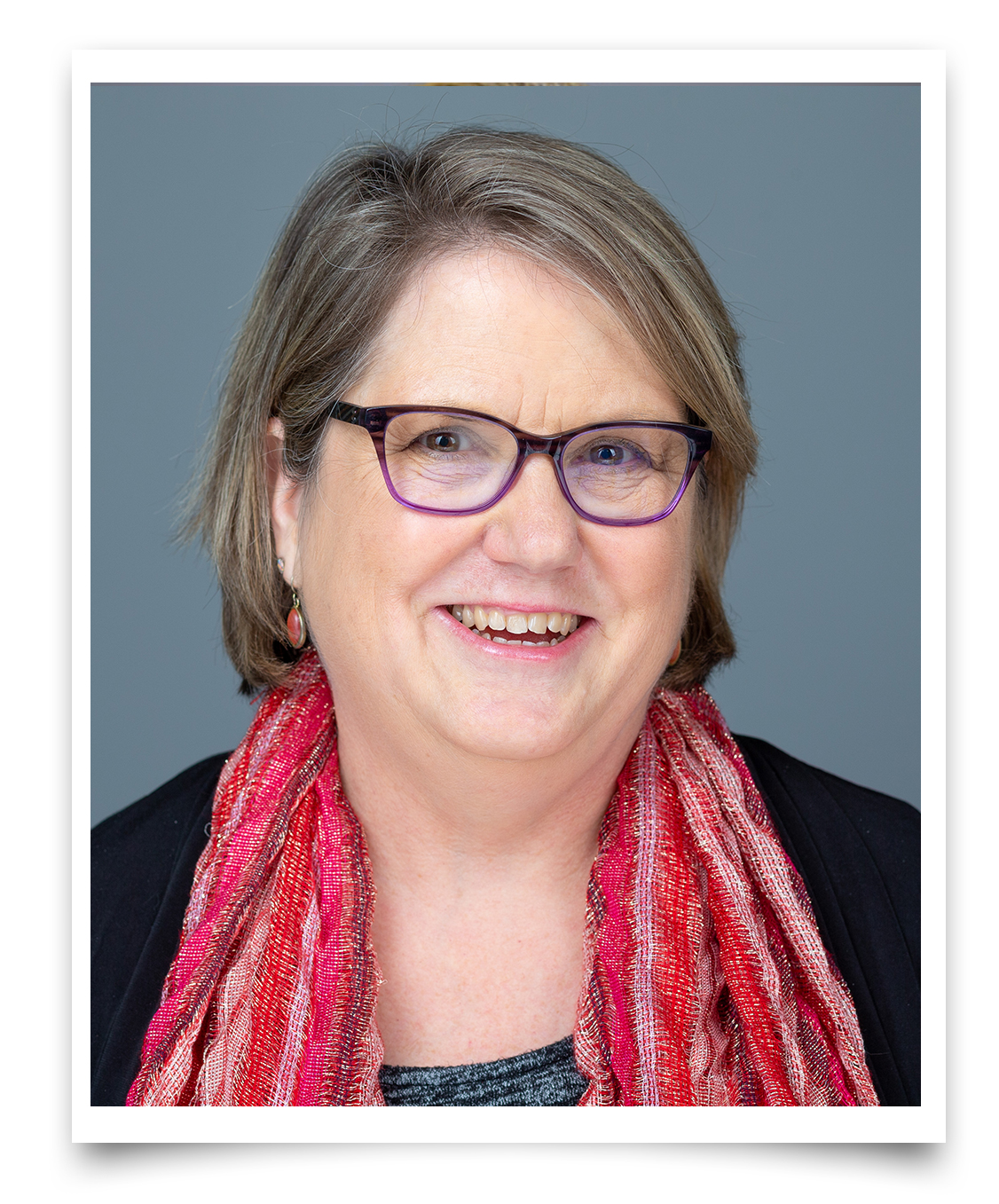
Elizabeth Sabin, DVM, PhD; Director of Global Outreach, American Veterinary Medical Association
Dr. Sabin receives this award in recognition of her contributions to the profession and society in the United States and around the world. Through her leadership of the AVMA Global Health Summit program, Sabin has been instrumental in bringing together professionals working in global health to address critical societal issues such as disaster preparedness, antimicrobial resistance, climate change, future veterinary education, and One Health.
Sabin received her DVM from UC Davis in 1992 and her Ph.D. in immunology from Cornell University in 1997, working overseas during both programs in Kenya and Brazil, respectively. Prior to beginning her career at the AVMA in 1998, Sabin was a research scientist with Heska Corporation in Fort Collins, Colorado studying immune responses in dogs and cats to parasitic diseases, including leishmaniosis and heartworm.
Sabin has advanced the profession as she has circled the globe—from building relationships with veterinarians and governments in war-torn Afghanistan to working with European, Canadian and Mexican governments on issues such as horse slaughter and rabies. She believes strongly in the power of organized veterinary medicine to advance the profession, while highlighting both its breadth and depth in positively impacting animal and human health and welfare worldwide.
Sabin also served for several years as the AVMA representative on the U.S. Delegation to the World Organization for Animal Health. In addition, she facilitated the AVMA’s diversity and inclusion initiatives, many in close cooperation with other veterinary organizations such as the Association of American Veterinary Medical Colleges, Lesbian and Gay Veterinary Association (now Pride Veterinary Medical Community), and Women’s Veterinary Leadership Development Initiative.
Sabin led the launch of both the International and the Diversity and Inclusion in Veterinary Medicine areas of the AVMA web site and the Access and Opportunity in Veterinary Medicine LinkedIn group—initiatives designed to facilitate discussions related to global veterinary medicine and diversity and inclusion in the veterinary profession. She remains a leader on the issues of diversity and inclusion within the veterinary profession.
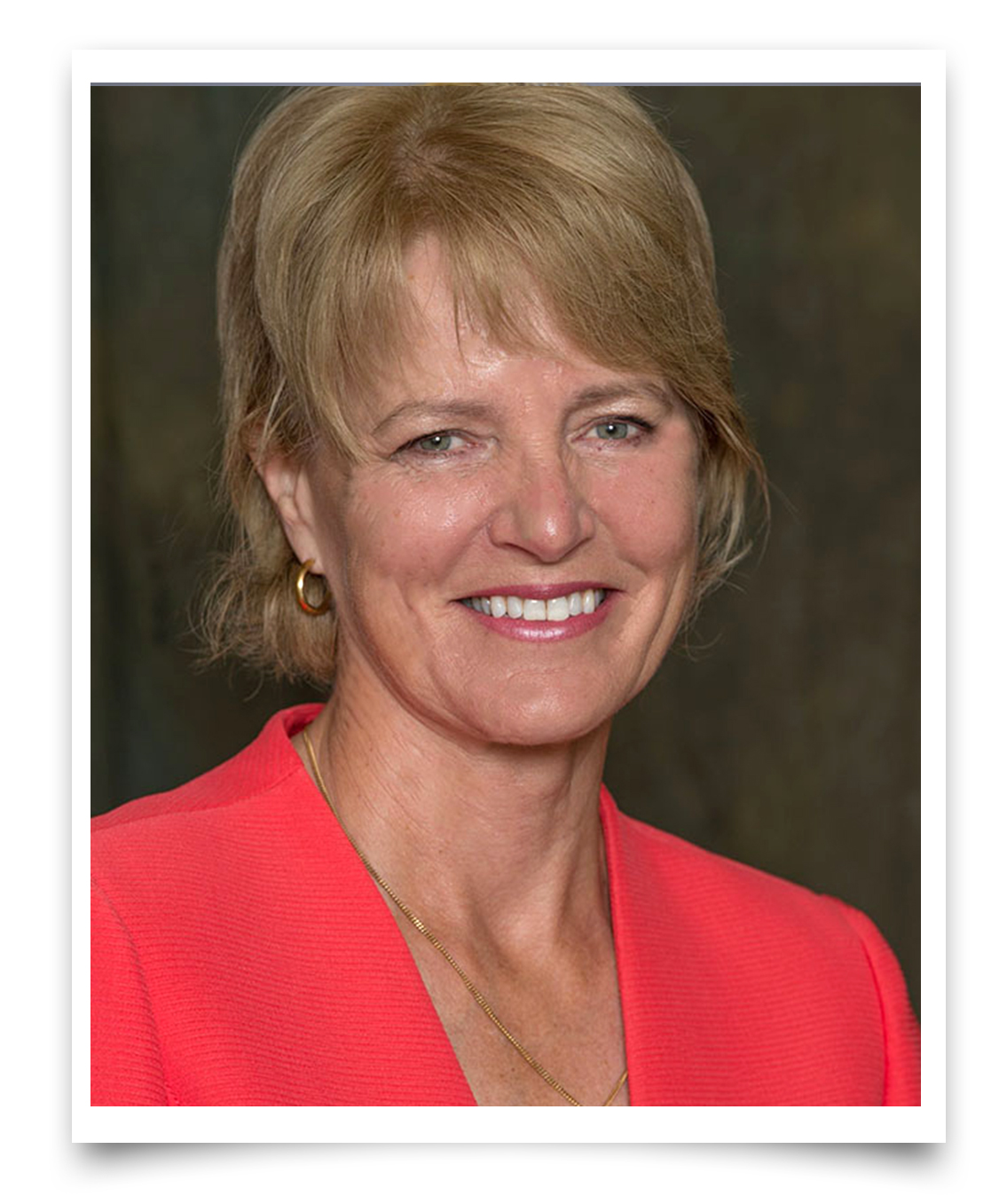 Stephanie Valberg, DVM, PhD; Professor and Mary Anne McPhail Dressage Chair in Equine Sports Medicine, Michigan State University
Stephanie Valberg, DVM, PhD; Professor and Mary Anne McPhail Dressage Chair in Equine Sports Medicine, Michigan State UniversityDr. Valberg is recognized for distinguished contributions to equine veterinary medicine, and graduate and resident training. A renowned clinician scientist, she has significantly impacted the practice of equine veterinary medicine over the last 30 years.
Valberg completed her residency in large animal internal medicine at UC Davis (1991) and became a Diplomate of the American College of Veterinary Internal Medicine (1992) and American College of Veterinary Sports Medicine and Rehabilitation (2011).
Among many notable research discoveries, Valberg was the first to identify, describe, and diagnose polysaccharide storage myopathy—the most common form of equine myopathy. She also devised a management strategy for affected horses that enables them to live a relatively normal life and perform. Her nominees said: “It is rare for a scientist to have such an impact on our knowledge of a veterinary problem over the course of a career.”
Valberg currently has more than 150 publications, including studies in Genomics and Mammalian Genome, two prestigious genetics journals. Her genetic research has uncovered the mutations responsible for several equine diseases and led to genetic tests for horse owners and breeders. Recently, Valberg collaborated with Dr. Carrie Finno (her mentee of the last 18 years) on the identification of the genetic mutation associated with susceptibility to immune- mediated myositis in the Quarter Horse. This work was published in the journal Skeletal Muscle and led to the development of a genetic test at the UC Davis Veterinary Genetics Laboratory.
Among many honors and awards, including the British Equine Veterinary Association Richard Hartley Clinical award, (2014), Valberg was the first woman inducted into the Equine Research Hall of Fame in 2012. In the same year, she was also the first woman to receive the American Association of Equine Practitioners Milne Award, a lifetime research achievement award.
Valberg is praised for her ability to successfully perform highly translational scientific studies and make complicated scientific results accessible to owners and veterinarians. She is committed to bringing the science back to the veterinary community and using her results to improve the practice of human and veterinary medicine.
- 2018
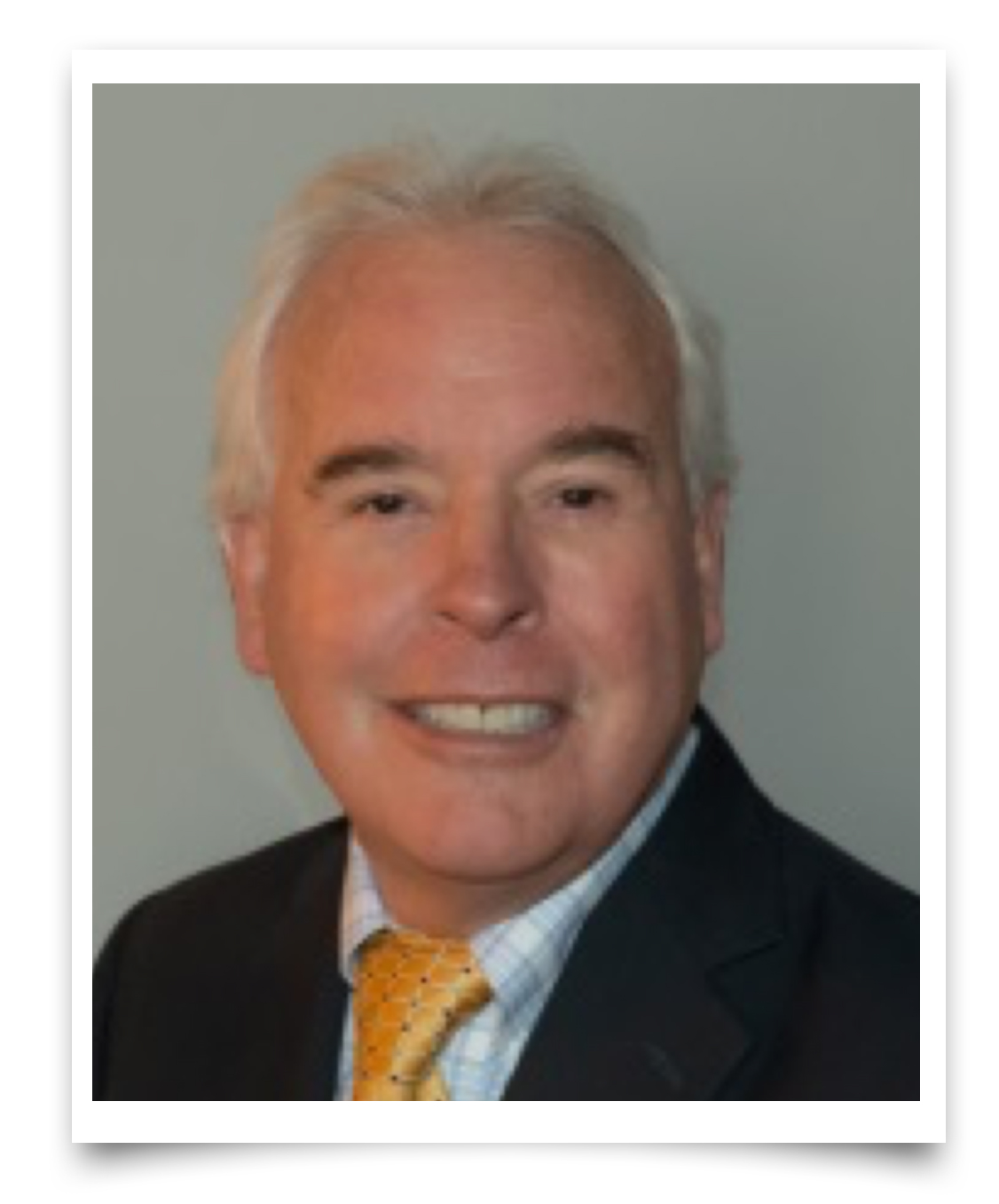
Stanley Creighton, DVM, DACVIM
President-Creighton Consulting and Founder Emeritus of National Veterinary Associates (NVA)
Dr. Creighton receives this award in recognition of his vision, effort, and leadership as the founder of NVA. His unique approach has enabled the organization to thrive for more than 20 years, employing more than 9,000 people at sites in the U.S., Canada, Australia and New Zealand.
Creighton earned his DVM degree from UC Davis in 1972 before pursuing an internship and residency at the Animal Medical Center in New York. He gained diplomate status from the American College of Veterinary Internal Medicine (ACVIM) in 1977 and served as associate professor at the University of Saskatchewan from 1975 to 1976. He was one of the first boarded specialists (ACVIM) to leave his academic career and build a very successful 24-hour referral hospital in southern California.
Highly regarded by his colleagues, Creighton is acknowledged for his farsighted leadership in the early 1990’s when he recognized that fewer graduates were interested in practice ownership while at the same time practices were growing beyond the single proprietorship or small partnership model into larger practices. He understood that veterinarians confronted all of the problems associated with larger businesses, but without the related background or economic infrastructure. In 1996, he sold his share of his private practice and devoted his full attention to founding NVA. He's been an active participant in veterinary business groups nationwide and is looked upon as an expert in practice management and internal medicine. Although he retired as NVA’s CEO in 2009, he remains an active member of its leadership team as Founder Emeritus and continues to contribute to its growth and vision.

Howard Hill, DVM, M.S., Ph.D.
Dr. Hill receives this award in recognition of his contributions to the health and welfare of swine and to the nation’s pork industry. During his career, he served 20 years on the faculty of the College of Veterinary Medicine, Iowa State University where he headed up the Veterinary Microbiology Section of the Veterinary Diagnostic Laboratory. He went on to serve in various director and chief operating officer positions with Iowa Select Farms where his colleagues recognize him as “Master of the Pork Industry.”
Born in a rural community just north of San Diego, Hill developed a love for all facets of agriculture. A solid group of mentors fueled his four-decade-long, multi-dimensional career in America’s heartland. As a diagnostic leader and tenured professor, he taught veterinary and graduate students and served the animal production industries, particularly the pork industry in its national fight to eradicate pseudorabies (PRV). He worked closely with IDEXX and Syntrovet in the development of the gene-deleted PRV vaccine and companion diagnostic tests. In 1994, he accepted an opportunity to consult with Murphy Family Farms, a large integrated hog production operation. In 2000, he joined Iowa Select Farms where he helped the company eradicate its PRV problem through an aggressive testing and vaccination program. He then went on to tackle porcine reproductive respiratory syndrome—a significant biosecurity challenge due to its airborne transmission. In 2010, Hill became even more active with the state and national pork producer organizations where he worked on public policy and industry related legislative issues. As a hog owner himself, Hill stays active in the industry.
Hill obtained his DVM at UC Davis in 1969 after which he moved to Iowa State University where he pursued a post-doctoral fellowship and earned his M.S. and Ph.D. degrees in microbiology.
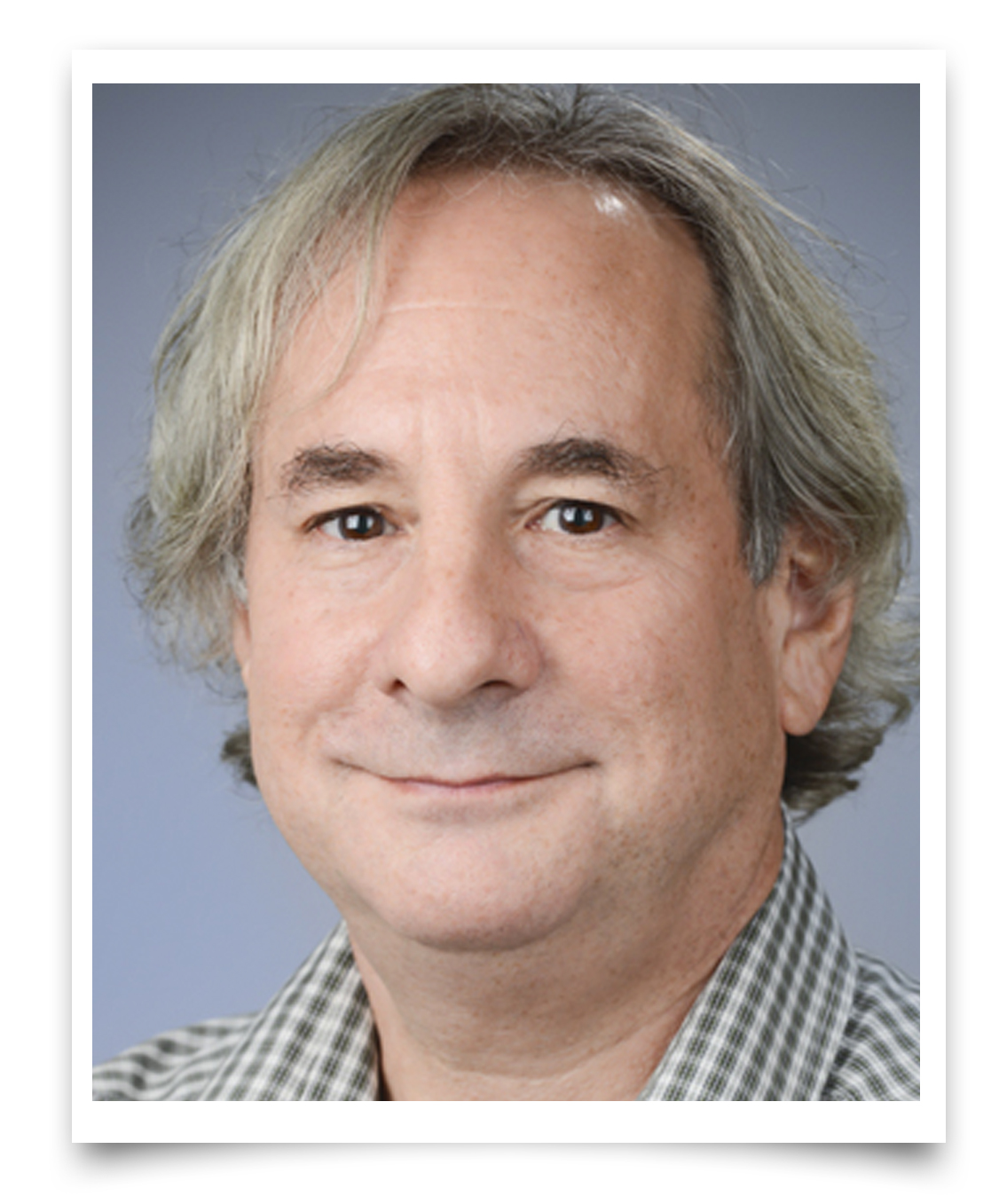
Philip Kass, DVM, MPVM, M.S., Ph.D., DACVPM
Vice Provost of Academic Affairs, UC Davis
Dr. Kass receives this award in recognition of his outstanding achievements in epidemiological research, extraordinary collegiate support, and distinguished leadership to enhance veterinary medical faculty diversity and equity. With more than 500 peer reviewed publications and mentorship of DVM, MPVM, Ph.D. students and residents, he has brought evidence-based medicine to veterinary science, contributing immensely to the profession and the advancement of the One Health approach.
Kass is described by colleagues as a natural teacher, generously giving of himself and his time to help students and residents to understand epidemiological concepts and support clinical research projects. He has mentored 64 graduate students, helping them and his colleagues understand the statistical evaluation of their data resulting in the validation of their study outcomes and successful publications. His work has had global impacts as a researcher, teacher and mentor, and clearly a scientific leader in his field. His research has spanned exotic, small and large animal veterinary medicine, as well as human-focused studies. His service to the school and the university on numerous committees, administrative and leadership positions has been significant and he’s recognized for his thoughtful and engaged contributions to the work at hand. As department chair, he was a strong advocate and champion for his faculty colleagues and their priorities, yet he depicts a humble and unassuming demeanor.
Kass earned his DVM (1982), MPVM (1984), M.S. in statistics (1988) and Ph.D. in comparative pathology and epidemiology (1990) at UC Davis. He joined the faculty in 1985 as an adjunct instructor and has risen through the professorial ranks during his distinguished career. He obtained diplomate status in the American College of Veterinary Preventive Medicine in 2007. Kass was appointed Vice Provost of Academic Affairs in 2017.
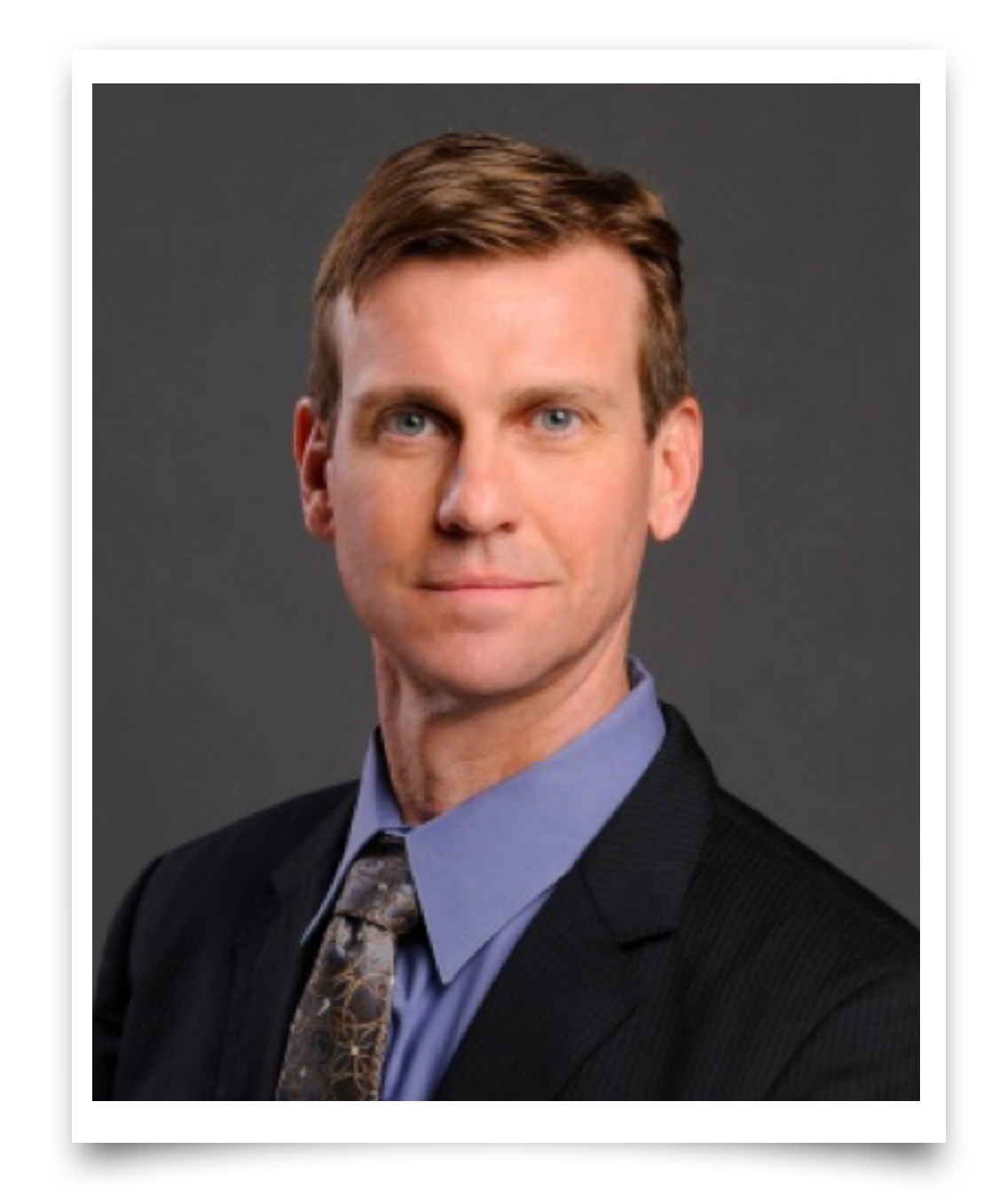
Jon Klingborg, DVM
Owner-Valley Animal Hospital in Merced, CA
Dr. Klingborg receives this award in recognition of his extreme dedication, leadership and tireless commitment to the health and welfare of the veterinary profession and animal patients. For more than 20 years, he has been at the forefront of the policy, regulatory, and political advocacy/leadership for the state’s veterinary profession, which in turn has impacted the profession nationally.
Klingborg earned his DVM from UC Davis in 1992 and has worked in veterinary private practice ever since. He is heralded by colleagues for his long view of changing public policy, willingness to commit the time and effort necessary to inspire change across years of volunteer activity, and his ability to build consensus with the various stakeholders to secure a goal. He has volunteered on 19 committees and task forces with the California Veterinary Medical Association (CVMA) to strengthen the veterinary profession, operating at a level equivalent to a second full-time job, while running his veterinary practice. In addition, he writes extensively for newspapers (250+ articles) and many blogs on dog and cat health.
Of particular note was his unprecedented tenure (2007-16) as chairman of the CVMA Legislative Committee. Always prepared, he personally researched legislation in great detail and assessed its potential impact on: the profession, the scope of practice, animal welfare, precedential issues, economic factors, and emerging science. His colleagues describe him as an industry leader who is thoughtful, bright and pragmatic and poised when testifying before legislators or speaking to media outlets. His dedication, knowledge, experience and enthusiasm has helped to advance veterinary medicine in California and maintain the quality and integrity of the profession.
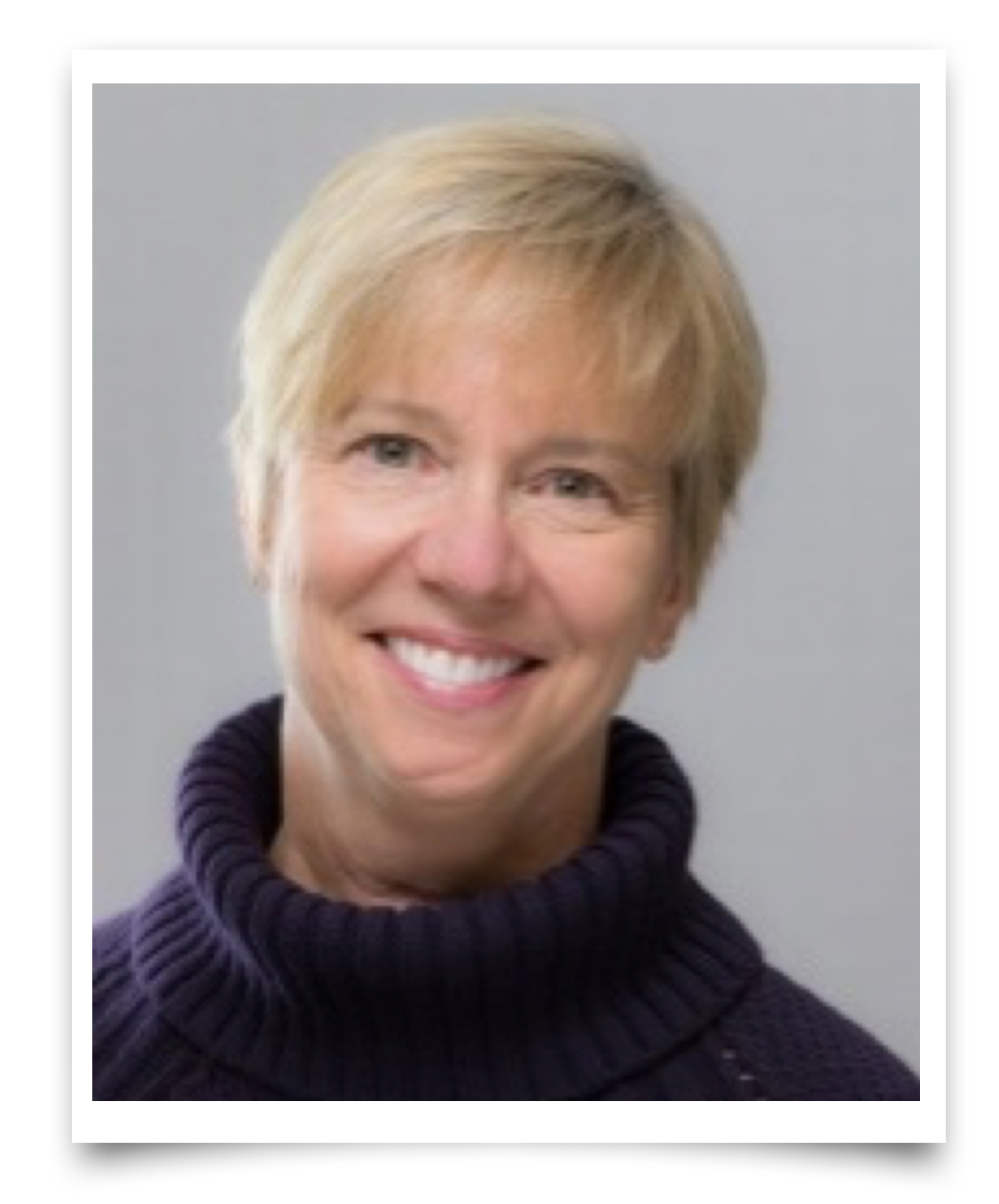
Pamela L. Ruegg, DVM, MPVM, DACVPM, DABVP
Professor and Extension Milk Quality Specialist, Department of Dairy Science, University of Wisconsin-Madison
Dr. Ruegg receives this award in recognition of her extraordinary service to dairy farmers, dairy cattle, and consumers of dairy products around the world. She has made significant contributions to the prevention and control of mastitis with an emphasis on evidence-based guidelines to reduce unnecessary antimicrobial usage.
Ruegg’s work includes a wide variety of factors that affect milk quality and food safety, such as storage conditions, teat anatomy, bedding type, pre- and post-milking procedures, worker training programs, and treatment protocols. She has studied on-farm and laboratory culturing of mastitis pathogens in great detail, particularly in regard to treatment outcomes, culture-negative cases, and antibiotic usage on commercial farms.
Ruegg is described as a highly effective teacher and outstanding public speaker, often invited to contribute to state, national, and international conferences. She is also recognized for being equally effective on the farm, working alongside farmers and veterinarians in assessing and resolving a broad array of animal health and milk quality issues. Ruegg has published on other key aspects of dairy cow health and welfare, such as tail docking, ketosis, pneumonia, lameness and biosecurity. She has been a key contributor to the improvement of dairy cow health and milk quality internationally in Central and South America, Europe, and China.
Ruegg earned her MPVM in 1988, and completed her Food Animal Herd Health and Reproductive Management Residency in 1989 at UC Davis. She served at the Atlantic Veterinary College, Michigan State University, and at Monsanto, before joining the faculty at the University of Wisconsin-Madison in 1998. She has published 110 peer-reviewed papers, twelve book chapters and hundreds of invited papers, abstracts, media articles and extension bulletins.
- 2017
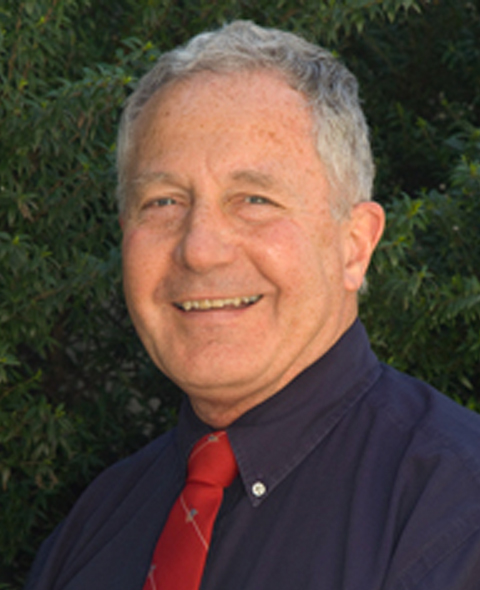
Dallas M. Hyde, MS PhD
Professor Emeritus,
UC Davis School of Veterinary MedicineDr. Hyde is recognized for his outstanding leadership and accomplishments in administration, research, postgraduate education and professional service in the School of Veterinary Medicine throughout his 35-year career. Described as a gifted teacher, Hyde was known for presenting clear, well-organized lectures, and he was always fully prepared. His obvious love for the subject material came through to his students, actively engaging them with his enthusiasm. He trained a large number of graduate students and mentored numerous postdoctoral students who have transitioned to highly successfully careers in academia and industry.
Hyde is internationally respected as a scientist and a leading authority on the biology of asthma and other lung diseases. His extensive research has focused on topics such as the pulmonary effects of environmental pollutants, lung repair and gene regulation, and immunity. He contributed to 264 publications, 28 book chapters and co-authored one book.
Hyde received his MS in 1972 from Whittier College, CA and his Ph.D. from UC Davis in 1976. He joined the faculty in 1979 as an assistant professor of anatomy and during his career served as department chair, associate dean for research and graduate education, and director of the California National Primate Research Center. He received a number of awards including the Pfizer Award for Research Excellence and the Outstanding Veterinary Anatomist Award from the American Association of Veterinary Anatomists.

Jonna A. K. Mazet, DVM, MPVM, PhD
Professor of Epidemiology,
Executive Director of the UC Davis One Health InstituteDr. Mazet is recognized for her superior research and teaching contributions aimed at improving global health for people and animals, and conservation of threatened species. As a veterinarian, epidemiologist, and wildlife and ecosystem health specialist, Mazet is transforming scientific and policy approaches to global health. Described as visionary, charismatic, and inspirational, Mazet epitomizes a new generation of scientist who harnesses transdisciplinary approaches into a holistic ethos that exemplifies One Health.
Mazet is a visible global ambassador in the quest to make the world safer from emerging and re-emerging viral diseases. She is the global director of a $175 million viral emergence early warning project, PREDICT, developed with the U.S. Agency for International Development Emerging Pandemic Threats Program. Covering 31 developing countries, PREDICT establishes a global surveillance system for zoonotic diseases emerging from wildlife using geospatial modeling, genomics, molecular virology and targeted field studies.
Mazet completed her education at UC Davis earning her DVM and MPVM degrees in 1992 and Ph.D in 1996. She has contributed to more than 120 peer-reviewed publications, written four book chapters and presented more than 45 invited and keynote addresses, which further attest to her national and international reputation. She is a committed educator, teaching in the DVM professional curriculum and has mentored 51 graduate and 19 postdoctoral trainees. She tirelessly supports the cross-fertilization of human and veterinary medical teams through the development of international short courses that train health professionals in inter-disciplinary best practices for improved global health. Mazet was elected to the esteemed National Academy of Medicine in 2013.
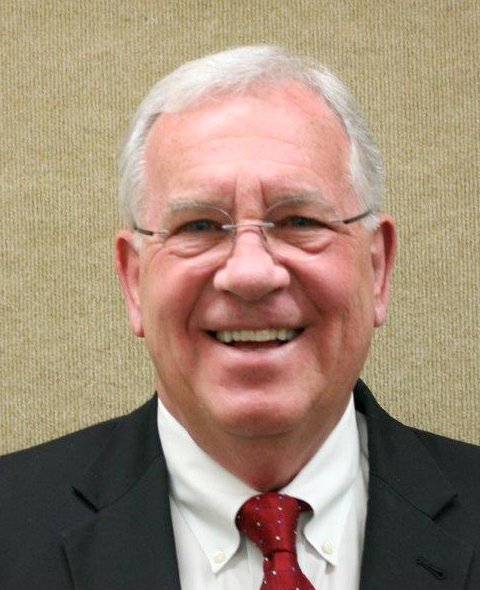
William A. Rood, DVM, JD
CEO/President of Rood & Riddle Equine Hospital
Dr. Rood is recognized for his leadership and community impact as the co-founder of Rood and Riddle Equine Hospital, one of the most renowned equine health care facilities in the world for its excellence, innovation, clinicians, facilities and service. An advocate for professional business education, he founded the American Association of Equine Practitioners Practice Management Symposium and the first Veterinary Management Group for equine practices.
Rood is described by colleagues as “an excellent clinician, enthusiastic and inquisitive, not afraid of taking risks, and challenging dogma.” He’s also recognized for bringing veterinarians together to build a practice that serves the equine community on the cutting-edge of the profession. Rood is dedicated to his patients, often delivering more than promised, and offers his wide range of knowledge to his colleagues as a team-player, leaving the responsibility and the accomplishment to the person he is assisting.
Born in Ohio and raised in the San Francisco Bay Area, Rood earned his DVM in 1972 from UC Davis and his law degree in 1975 from the University of Kentucky. While attending law school, he started a successful ambulatory equine practice in Lexington. In 1981, he partnered with Tom Riddle to form the Rood and Riddle Equine Hospital. He served as hospital administrator and managed his own ambulatory practice until 2000 when the growth of the hospital demanded he serve as hospital director full-time. Rood now manages 60 veterinarians and more than 220 total staff.
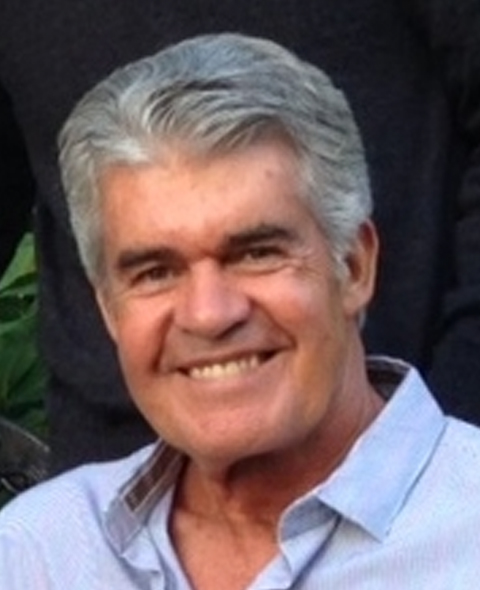
Ted S. Stashak, DVM, MS, DACVS
Professor Emeritus, Equine Surgery,
Colorado State UniversityDr. Stashak is recognized for his sustained commitment and efforts to advance the education and knowledge of veterinarians, farriers, and horse owners to improve the health and wellbeing of horses. He has published more than 130 scientific articles, edited seven textbooks, written more than 28 book chapters, and lectured at nearly 400 meetings. His textbooks are essential references for equine veterinarians.
Stashak is world renowned in the area of equine lameness and wound healing, pioneering numerous surgical techniques still used today. His impact on the veterinary profession is extensive and continues through the graduate students he mentored who have gone on to advance the profession.
Stashak earned his DVM degree at UC Davis in 1971 and completed an internship (1972), surgical residency (1975), and MS degree (1975) at Colorado State University (CSU) before becoming a Diplomate of the American College of Veterinary Surgeons in 1977. He joined the faculty at Colorado State University in 1974, except for a three year move to Florida, he served on the faculty at Colorado until his retirement in 2004. He was active in a number of professional societies and served as the chairman of a multitude of ACVS and AAEP committees.
He is widely recognized for his leadership and insights by equine veterinarians, farriers, and horse owners. He was inducted into the International Equine Veterinarians Hall of Fame in 2003 and was awarded Equine Speaker of the Year in 2000 by the North American Veterinary Conference. He received the Colorado Veterinary Medical Association’s Outstanding Faculty Award in 1997.
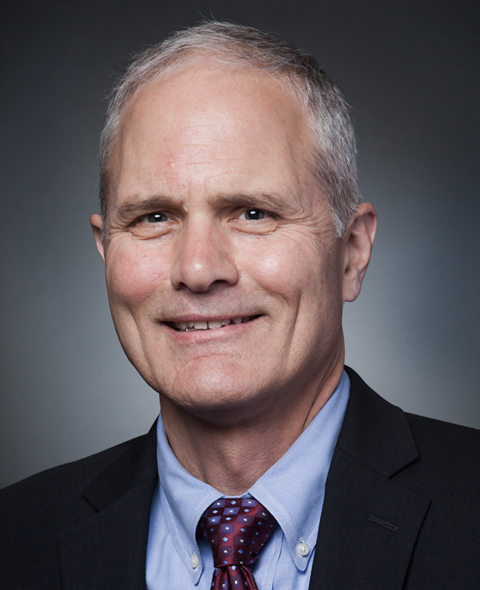
John R. Stuelpnagel, DVM, MBA
Chairman of 10x Genomics, Inc.
Dr. Stuelpnagel is recognized for his extraordinary contributions to society through his pioneering work, entrepreneurial spirit, and vision for the application of genetic sequencing. The impact of his work can be seen in agriculture, human health care, and genetic manipulation and editing. His groundbreaking work and leadership at Illumina led to the development of an array of tools and technology used in genotyping and gene expression profiling. After departing Illumina, Stuelpnagel has continued to push the envelope through the co-founding of five other companies that have developed and commercialized genetic products including: prenatal tests, immune sequencing for tracking the efficiency of blood cancer therapies, and a clinical informatics platform to interpret DNA sequences for diagnostic testing. He is the co-inventor on 35 issued U.S. patents and the co-inventor on 76 pending U.S. patents.
Stuelpnagel earned his DVM at UC Davis in 1983 and his MBA from UC Los Angeles in 1997. His colleagues characterize him as “a remarkable catalyst who has made extraordinary contributions to society.” The companies that he founded have revolutionized how modern science is performed in academic and private institutions all over the world. They have also contributed to basic and translational discoveries and technologies that will allow scientists to better address fundamental challenges such as maintaining adequate world food supplies, and conquering an array of biomedical problems, including genetic disorders and chronic disease.
- 2016
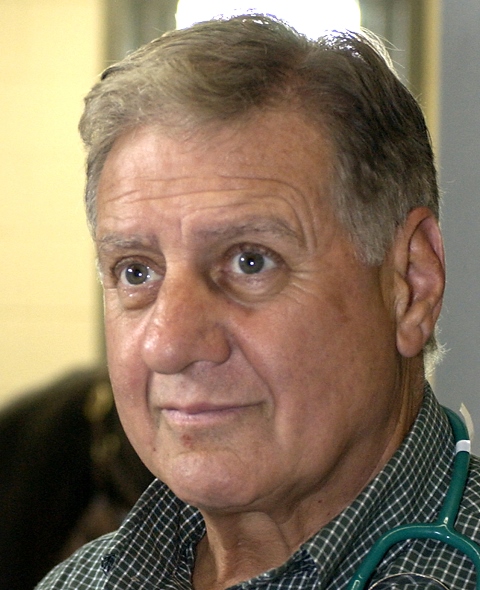
T. Douglas Byars, DVM '74, DACVIM, DACVECC
Byars Equine Advisory LLC, Georgetown, Kentucky
Dr. Byars is honored (posthumously) in recognition of his outstanding contributions to the evolution of equine veterinary practice, especially equine internal medicine and critical care.
Dr. Byars was board certified in internal medicine from the American College of Veterinary Internal Medicine (ACVIM) in 1980 and was one of the first large animal veterinarians to receive board certification in the American College of Veterinary Emergency and Critical Care (ACVECC) in 1990. He served as an associate professor at the College of Veterinary Medicine, University of Georgia for six years before joining the acclaimed Hagyard, Davidson, and McGee equine practice in Kentucky. During his career, he incorporated state-of-the-art diagnostic approaches in everyday practice and advanced to hospital director, serving a referral caseload of 2,200 horses per year and mentoring interns and residents.
He was highly regarded for his knowledge and technical abilities in practice and his passion for teaching. He was thought to be a pioneer in bringing equine specialists to private practice, paving the way for other equine specialists to achieve ACVECC certification and make unique advancements in emergency and critical care treatment of horses. He has been described as having an inquisitive mind and an independent nature to initiate change when needed. He developed a major interest in hemostasis and has reported on a number of discoveries regarding bleeding and coagulation disorders in horses.
During his career, Dr. Byars established a reputation in his field for being a cutting edge practitioner and outstanding teacher. He gave more than 75 scientific presentations, including invited lectures in Australia, Canada, Ireland, Spain, England and Dubai. He served as a member of the editorial board of the Equine Veterinary Journal for more than 25 years.
Dr. Byars was an active leader in a number of professional societies and recognized for excellence with the Robert W. Kirk Award for Professional Excellence in 2007, the ACVIM’s highest award.

Ian Gardner, BVSc, MPVM '84, PhD '87
Professor of Epidemiology and Canada Excellence Research Chair
Department of Health Management, Atlantic Veterinary College
University of Prince Edward IslandDr. Gardner is honored for his outstanding global contributions that advance the discipline of veterinary epidemiology.
Dr. Gardner’s 40-year career began as a Veterinary Research Officer in Australian Agriculture before coming to UC Davis to pursue his MPVM and Ph.D. in Comparative Pathology. In 1988 he joined the school’s faculty where he served with distinction for 23 years, rising to Professor of Epidemiology. He went on to lead aquatic epidemiology efforts at the Atlantic Veterinary College and continues to be internationally recognized for his leadership in applied veterinary epidemiology.
Dr. Gardner is highly regarded as both an excellent teacher and researcher who has received numerous awards and published more than 300 peer-reviewed publications. One of his strengths has been described as his ability to effectively blend theory and application of epidemiologic principles. Not only is this ability key to his teaching success, but he regularly brings this expertise to the numerous national and international committees, policy-development activities within USDA and at the World Organization for Animal Health. His continued appointment to these committees reflects the peer respect that he has earned in the global veterinary research community through his research focused on the improved evaluation of diagnostic testing standards for economically important, transboundary diseases.
Dr. Gardner has been a key collaborator on a wide range of projects including infectious diseases of livestock and production aquaculture, African horse sickness, West Nile fever, Johne’s disease, validation of diagnostic tests and development of appropriate management/disease mitigation strategies. He has also collaborated on many other contemporary issues such as: lameness and breakdown injuries of racing horses, protozoal diseases of marine mammals and Culicoides-transmitted viral diseases.

Linda Logan, DVM, MS, PhD '87
Professor, Department of Veterinary Pathobiology
Director of International Programs
College of Veterinary Medicine and Biomedical Sciences
Texas A & M UniversityDr. Logan is honored for her outstanding leadership and contributions to the global community through the promotion of veterinary medicine, animal health and international agriculture.
Dr. Logan’s career is founded on her longstanding interest in tropical diseases of livestock including Trypanosoma congolense infections of calves, rickettsia, Heartwater disease of domestic and wild ruminants and Cowdria ruminantium.
At an early age she was encouraged to discover and appreciate a vast diversity of cultures, languages, geography, animal populations and ecologies. With this background she has pursued a lifelong career as a high-impact veterinary biomedical research scientist, an inspiring educator, and a visionary leader of international animal and public health programs. She has organized numerous workshops and exchanges for veterinary educators in the Middle East, Africa and at Texas A&M University. She has received a number of awards, including the International Veterinary Congress Prize in 2014.
Dr. Logan has held a number of critical leadership positions including: Research Leader at the International Livestock Research Institute in Nairobi, Kenya; Leader of Animal Health on the National Programs Staff of the Agricultural Research Service of USDA; Texas State Veterinarian; USDA Agricultural Attaché for the East Africa and Middle East; and USDA Senior Agricultural Attaché for all of Africa.
Dr. Logan is viewed as a mentor and collaborator, encouraging her colleagues to work together to find inventive solutions. By establishing alliances and cooperations, she has successfully launched programs to advance animal and human health, and been a major supporter of veterinarians in the developing world.

Danny Scott, DVM '71, DACVD
James Law Professor of Dermatology
College of Veterinary Medicine, Cornell UniversityDr. Scott is honored for his pioneering clinical discoveries in veterinary dermatology.
Dr. Scott has made impressive contributions to the field of veterinary dermatology. His descriptions and characterizations of dermatology disorders over four decades have remained standards for lesion characterization and are often referenced in today’s research manuscripts. He is credited with identifying 150 important disease descriptions in eight different species--dogs, cats, horses, cows, goats, sheep, pigs, and woodchucks. He has authored 460 scientific articles, 74 book chapters, 8 textbooks, and 82 proceedings.
Dr. Scott is one of the rare veterinary dermatologists that works on both small and large animal species. His particular expertise in equine dermatology is widely recognized and sought after. He has been invited to deliver more than 449 presentations nationally and internationally.
His dedication to the profession and enthusiasm for sharing knowledge has led to his honorary lifetime membership in the European, Hellenic, and Japanese Societies of Veterinary Dermatology, British Veterinary Dermatology Study Group and the American College of Veterinary Pathologists. Dr. Scott has received 21 professional awards for teaching as well as national and international awards recognizing his expertise in veterinary dermatology and dermatohistopathology.
Dr. Scott is an avid educator. He has trained 22 dermatology residents and participated in the training of dozens more. He began teaching as an intern in 1971 and has taught veterinary students at Cornell ever since. He’s actively involved in coordinating core curriculum courses.
Dr. Scott was instrumental in the formation and development of the Dermatology Service at Cornell’s veterinary teaching hospital which is now recognized internationally for clinical and scientific excellence in veterinary dermatology.
- 2015
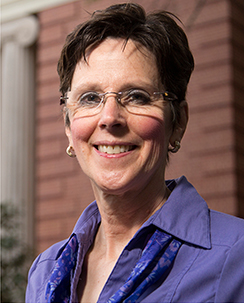
Corrie Brown, DVM '81, PhD '86
Josiah Meigs Distinguished Teaching Professor
College of Veterinary Medicine, University of GeorgiaBrown is honored for her ceaseless dedication to excellence in teaching, veterinary science and control of infectious disease for the health of all.
As a pathologist, Brown has worked nationally and internationally for more than 25 years, building animal health infrastructure and diagnostics. She specifically studies emerging diseases, pathogenesis of disease in food-producing animals and diagnostic infrastructure in developing countries.
Her work in international food security and bioterrorism is marked by high recognition from the Departments of State, Homeland Security, Agriculture, and Defense, and other intergovernmental groups such as the United Nations Food and Agriculture Organization, as well as the World Health Organization and World Animal Health Organization.
Brown joined the University of Georgia’s (UGA) College of Veterinary Medicine in 1996. In 2004, she received school’s highest teaching award, the Josiah Meigs Distinguished Teaching Professorship and, for 2009-2010, was named a UGA Senior Teaching Fellow.
Her work in more than 30 countries includes conducting workshops on basic field necropsy and diagnostic techniques. She also has served on national and international expert panels about animal health and has received numerous awards, including the XIIth International Veterinary Congress Prize from the American Veterinary Medical Association (AVMA) in 2013. The annual prize recognizes outstanding global service by a member of the AVMA, which, with more than 84,000 members, is one of the oldest and largest veterinary medical organizations in the world.
Prior to her current position, Brown was head of the pathology section with the U.S. Department of Agriculture at Plum Island, where she specialized in the diagnosis and pathogenesis of trans-boundary animal diseases. She was also an assistant professor of pathology at Louisiana State University.
Brown is regarded by her colleagues as a dedicated veterinarian, pathologist, humanitarian, and educator who embodies in her work and her life a passion for the veterinary profession and for those in the world less fortunate.
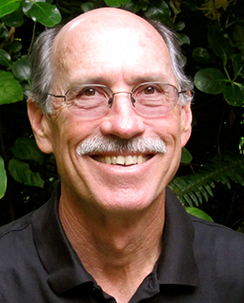
Tim Carpenter, MS '74, MS '78, PhD '79
Professor of Veterinary Epidemiology and Economics
Director of the EpiCentre, Massey University, New ZealandCarpenter is honored for his contributions over four decades to veterinary medical research, teaching and mentoring of students and colleagues.
His main research interests include epidemiology, simulation modeling, risk analysis, economic decision making, spatial statistics, avian influenza, brucellosis, foot-and-mouth disease, toxoplasmosis, tuberculosis, and other diseases of humans, wildlife, and livestock.Carpenter spent 37 years of his career at UC Davis, beginning in 1976 as a Research Associate/Lecturer and ending as Professor of Epidemiology in the Department of Medicine and Epidemiology. (He is currently Professor Emeritus.)
During his tenure at UC Davis, Carpenter supervised a large cadre of graduate students who have gone on to develop successful and productive careers, contributing to animal health and welfare, public health, poverty alleviation and environmental sustainability. He also contributed a great deal to the Masters of Preventive Veterinary Medicine program. He was the inaugural Chair of the Graduate Group in Epidemiology. In 2004, Carpenter co-founded the Center for Animal Disease Modeling and Surveillance within the veterinary school.
At a time when most academics retire, in 2012, Carpenter embarked on a new career as the Gilruth Chair of Animal Health and the Director of the EpiCentre at Massey University.He has published more than 200 papers in peer-reviewed literature and has presented keynote addresses at many international meetings, including the International Symposia on Veterinary Epidemiology and Economics. Carpenter is one of only three individuals who have attended every ISVEE conference since its inception in the 1970s.
Carpenter’s standing among veterinary epidemiologists specialists is legendary. He has received numerous honors and awards, including the Outstanding Faculty Award from the Graduate Group in Epidemiology in 2001. This year he established a World Organisation for Animal Health Collaborating Centre at Massey University.
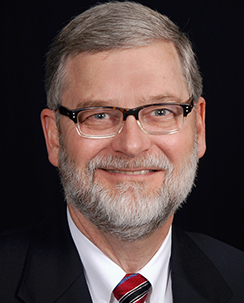
Jack R. Harkema, MS '77, DVM '80, PhD '85
Dipl. American College of Veterinary Pathologists (ACVP)
Distinguished Professor of Pathobiology, Michigan State University (MSU)Harkema is honored for his exceptional leadership, commitment to teaching, and outstanding scientific accomplishments of veterinary and toxicologic pathology.
As a biomedical researcher, Harkema focuses his studies on understanding the pathobiology and toxicology underlying the health effects of environmental and occupational air pollutants. Much of his recent work deals with developing animal models of human cardiopulmonary and metabolic disease (e.g., asthma, cardiometabolic syndrome) used to investigate how acute or chronic disease may affect an individual’s susceptibility to toxicant-induced injury and subsequent repair.
After completing a NIH-sponsored residency/research training program in comparative pathology and toxicology at UC Davis following his Ph.D., Harkema joined the scientific staff at the Lovelace Inhalation Toxicology Research Institute in Albuquerque, NM in 1985 as an experimental and toxicologic pathologist and later became the institute’s project manager for pathogenesis research.
In 1994, Harkema joined the faculty of the Department of Pathobiology and Diagnostic Investigation in the College of Veterinary Medicine at MSU, where he received his DVM. In 2011, he became the Director of the Great Lakes Air Research Center for Integrative Environmental Research (GLACIER), one of four EPA-funded Clean Air Research Centers in the nation. Harkema has co-authored more than 200 peer-reviewed scientific publications and has served on numerous scientific advisory committees, including those for the National Institutes of Health, the Environmental Protection Agency, and National Academy of Sciences.
In addition to training graduate students, residents, and postdoctoral fellows in biomedical research, he also moderates courses in advanced general pathology, integrative toxicology, and pulmonary pathobiology. Harkema is a member of the Society of Toxicologic Pathologists, the Society of Toxicology, and the ATS. His work has been recognized with numerous honors, including the 2001 Pfizer Award for Research Excellence and the 2006 Distinguished Faculty Award—both given to him from the College of Veterinary Medicine at MSU.
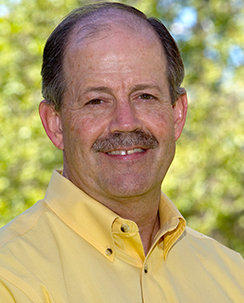
Donald Janssen, DVM '78
Dipl. American College of Zoological Medicine (ACZM)
Corporate Director of Animal Health, San Diego Zoo GlobalJanssen is recognized for his dedication to wildlife health and conservation across the world. He is respected not only for the quality of his veterinary care within zoological institutions, field research, publications, national and international presentations and training workshops in wild animal health, but also because of his leadership roles in the profession.
Janssen has contributed to nearly every edition of the late Murray Fowler’s text and reference book, Zoo and Wild Animal Medicine. His peer reviewed publications include the early alert to the importance of lead intoxication in California condors. He has led multi-organization teams working at Chengdu Panda Base Breeding Center in China to improve health and breeding of captive giant pandas. This effort has led to more than 125 successful births at that institution.
In his current position, Janssen oversees veterinary services at the San Diego Zoo and the San Diego Zoo Safari Park, as well as veterinary support for conservation and research activities of San Diego Zoo Global. He is a past president (1994) of the American Association of Zoo Veterinarians (AAZV), a past president of the ACZM (1987-1989) and has chaired the Animal Health Committee for the American Zoo and Aquarium Association.
In 2009 he received the AAZV Emil Dolensek Award “in appreciation for exceptional contributions to the conservation, care, and understanding of zoo and free-ranging wildlife reflecting Emil Dolensek's commitment to these purposes.”
After his internship/residency at San Diego Zoo (1978-80), Don served two years as associate veterinarian at the National Zoological Park in Washington DC, before returning to the San Diego Zoo in 1982 as an associate veterinarian. His influence within that institution has grown over the years and in 1994 he was a key member of the strategic planning task force which led to the development of the Joint Zoological Medicine Residency Program with the school, considered to be one of the premier residencies in the field.
- 2014
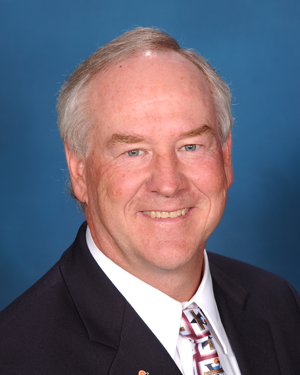 Ralph Edward Barrett, DVM '73
Ralph Edward Barrett, DVM '73Dipl. American College of Veterinary Internal Medicine (ACVIM)
Past-President of the North American Veterinary ConferenceBarrett is honored for his contributions to the advancement of veterinary education and the development of specialty practice. He co-founded the Sacramento Animal Medical Group (SAMG), a multi-disciplinary specialty practice, which at one time was the largest in the Western United States.
In addition to a love for his patients, Barrett has exhibited a keen dedication to continuing education. During more than 20 years at SAMG, Barrett trained an average of seven interns a year, ophthalmology residents, and two internal medicine residents, and pioneered the sharing of residents between private practice and a university. Barrett was elected the AAHA Far West Region Practitioner of the Year in 1995, authored numerous text book chapters and journal publications, and lectured nationally for over 30 years.
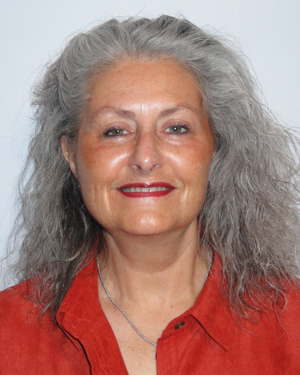
Sharon Center, DVM '75
Dipl. American College of Veterinary Internal Medicine (ACVIM)
Professor of Small Animal Medicine, College of Veterinary Medicine
Clinical Programs Center, Cornell UniversityCenter is honored for her dedication to providing the highest standard of care while advancing the field and practice of internal medicine. In her research and clinical service, Center has been motivated primarily by a passion for understanding the mechanisms of disease with the goal of improving the health and welfare of her patients.
In addition to constantly improving the standards for patient care, Center is a leader in research on liver diseases in companion animals. Her clinical and research studies have been documented in more than 100 peer-reviewed manuscripts, 50 scientific abstracts, and 50 chapters in books. She is also a dynamic teacher and is highly sought as a lecturer at veterinary conferences, both national and international, and has served as an expert on government and industry panels concerned with liver disease and nutrition.
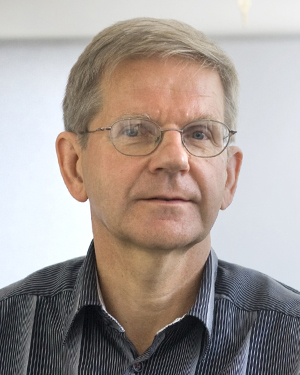
Yrjö Gröhn, LVM '77, MPVM '82, MS '83, DMV '85
Dipl. European College of Veterinary Public Health (ECVPH)
Professor of Epidemiology, College of Veterinary Medicine, Cornell UniversityGröhn is recognized for his leadership and impact, both nationally and internationally, in the field of veterinary epidemiology. As an epidemiologist in the areas of food safety and public health, Gröhn’s work merges disciplines from molecular biology to social sciences. Through his service on expert panels and large scale research projects, Gröhn is well connected to both the dairy and beef industries in matters related to health and food safety. He has published over 200 peer reviewed, scientific articles.
In addition to his research, Gröhn is highly regarded as an educator. He has earned recognition for a series of workshops on modern epidemiological methods that he teaches worldwide. In addition, he has served on over 30 Ph.D. committees and supervised 26 postdoctoral and research fellows.
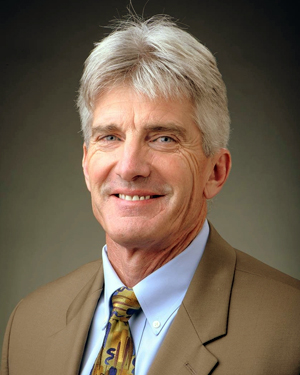
Mark Markel, DVM '83, PhD '90
Dipl. American College of Veterinary Surgeons (ACVS)
Dean, School of Veterinary Medicine, University of Wisconsin-MadisonMarkel is honored for exemplary achievements in academic veterinary medicine and numerous contributions to the fields of comparative orthopedics and veterinary surgery. After completing his B.S., DVM and residency at UC Davis, Markel joined the faculty at the University of Wisconsin in 1990 and was recently announced as their new dean.
Markel has made many impactful research contributions to the field of orthopedic surgery. He is an inventor on 8 patents and has published over 200 peer reviewed manuscripts, 59 book chapters and edited one book as well as published 233 scientific abstracts. His laboratory has provided critical information for the founding or venture capital funding of several biotechnology companies.
Markel has received the Lodwick Award from Harvard University, the William Harris Award from the Orthopedic Research Society, and Bayer Excellence Research Award from the American Veterinary Research Foundation.
- 2013
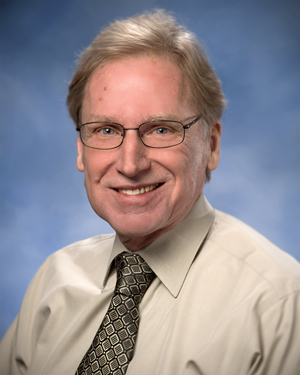
Stephen P. DiBartola, DVM '76, DACVIM
Associate Dean for Academic Affairs and Professor of Medicine
College of Veterinary Medicine, The Ohio State University (OSU)DiBartola is recognized for his outstanding contributions to veterinary internal medicine as a clinician, educator and researcher. He has co-mentored and trained 41 residents in internal medicine, of whom 39 have become ACVIM Diplomates as well.
DiBartola is a noted authority on renal and urinary tract disease. He helped characterize familial renal amyloidosis in Abyssinian cats and polycystic kidney disease in Persian cats. Due to DiBartola’s early groundwork, molecular geneticists at UC Davis were able to identify the abnormal gene in Persian cats and develop a test that allows veterinarians to routinely screen at-risk cats for this genetic abnormality prior to breeding.
DiBartola has published four editions of Fluids, Electrolytes, and Acid-Base Disorders in Small Animal Practice—the leading veterinary textbook on this subject. He also serves for the past 13 years as the co-Editor-in-Chief for the Journal of Veterinary Internal Medicine.
DiBartola served as the section head of Small Animal Medicine at OSU from 1996 to 2006 and has made substantial contributions to the curriculum at the school. In recognition of his dedicated teaching, DiBartola received the Norden Distinguished Teaching Award from OSU in 1988.
DiBartola is a resident of Columbus, Ohio.
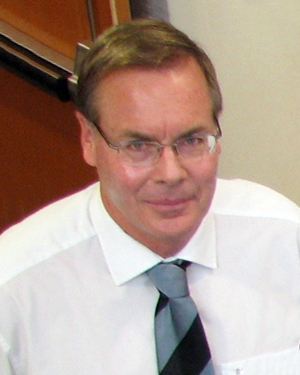
Robert Millikan, DVM '84, MPH '91, PhD '93
Barbara Sorenson Hulka Distinguished Professor of Cancer Epidemiology
University of North Carolina
Director of the Molecular Epidemiology Facility Core
Carolina Center for Environmental Health and Susceptibility (until his passing in 2012)Millikan is honored posthumously for his groundbreaking work as a genetic epidemiologist in discovering the causes of breast cancer and for determining the populations of women at greatest risk. His discoveries aided in the understanding of why certain chemotherapeutic drugs were effective only in certain subgroups of women.
Millikan had a particular interest in studying breast cancer and health disparities in African-American women, a population with diminished access to health care and who historically have poorer medical outcomes than other ethnic groups. His seminal findings, published in over 100 papers, and his work through the Carolina Breast Cancer Study have changed the face of breast cancer disparities research.
Millikan’s breast cancer research was well funded by a $19.3 million grant from the National Cancer Institute of the NIH.
Millikan was a much-loved and well-respected teacher at the North Carolina State College of Veterinary Medicine. He co-authored a chapter on genetic epidemiology in Rothman, Greenland and Lash’s Modern Epidemiology—the definitive textbook available today on the topic.
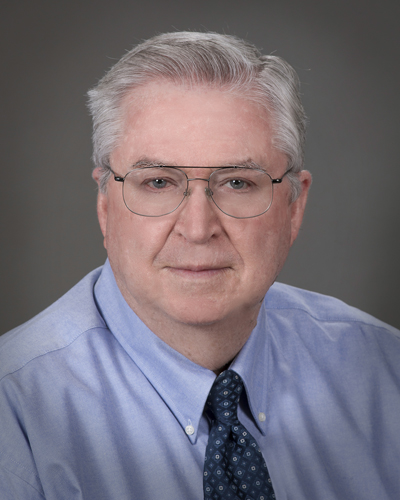
Roy Pool, DVM '64, PhD '67
Clinical Professor of Pathology
Texas A&M College of Veterinary MedicinePool is recognized as an orthopedic pathologist with a unique desire to improve clinical veterinary medicine through teaching, service and research. He has over 40 years’ experience in diagnostic pathology and specializes in musculoskeletal disease in small animals and athletic horses.
For 25 years, Pool taught courses at the School related to the musculoskeletal system and served as the musculoskeletal pathologist for the VMTH. His evaluation and classification of more than 2,000 bone and joint tumors of dogs and cats formed the basis for the World Health Organization’s “Histological Classification of Bone and Joint Tumors of Domestic Animals” 2nd series, for which he is a co-author.
Pool participated in the UCD “Racetrack Breakdown Study,” which characterized catastrophic Thoroughbred racing injuries and, along with Susan Stover, established the world-class orthopedics research laboratory at UC Davis that further investigates the pathogenesis of racing injuries.
At Texas A&M, Pool established an Osteopathology Specialty Service that assists small animal and equine orthopedic surgeons and clinicians, radiologists and oncologists in academic and private practice in the U.S. and Europe.
Pool has co-authored more than 160 publications, presented more than 250 invited lectures, and received international recognition for his research expertise.
Pool resides in Bryan, Texas.
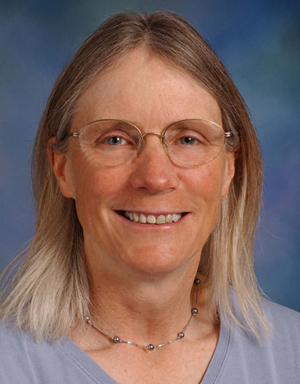
Susan Stover, DVM '76, PhD '87, DACVS
Professor of Anatomy and Director, J. D. Wheat Orthopedic Research Laboratory
UC Davis School of Veterinary MedicineStover is honored for her contributions to veterinary orthopedic research, particularly toward understanding musculoskeletal injuries of racing horses and improving racetrack safety. She is internationally known for her work that systematically characterizes equine bone growth and development and its response to repetitive use.
While Stover’s individual research is focused on horses, her overall program is comparative and reflects active collaboration with physicians and engineers, modeling microcrack fractures in bone with important implications for a variety of human orthopedic diseases including osteoporosis. Stover’s studies have demonstrated that pre-existing stress fractures underly the pathogenesis of most performance related fractures in athletic horses.
Stover has identified risk factors for fracture development, resulting in better early detection, changes in training methods and overall improvements in racehorse welfare worldwide. She has also directed studies to improve methods of fracture repair, developed new techniques to detect lameness and added substantially to the early knowledge of pharmacokinetics of antimicrobial drugs used to prevent equine orthopedic infections.
Stover, a highly regarded teacher, has also trained more than 70 residents and graduate students. Among many honors, she has received the Norden Distinguished Teaching Award and the Faculty Research Award from UC Davis.
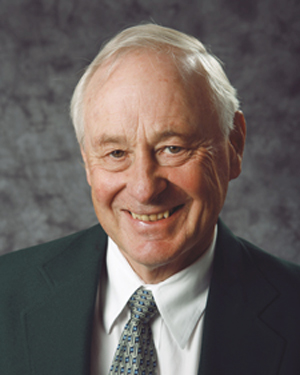
Jack Walther, DVM '63
Educational Commission for Veterinary Foreign Graduates
Past President of the American Veterinary Medical Association (AVMA)Walther is recognized for his dedication and leadership to the profession and for his strong commitment to the mentorship of future veterinarians. In the 50 years since graduating from the School, Walther has led many professional organizations including the Nevada VMA, Nevada Board of Veterinary Medical Examiners, Reno Rodeo Association and National Air Race Association.
In 2001, Walther was first elected Vice President and then President of AVMA. As AVMA’s 140th President, Walther made several organizational improvements including the formation of the public relation’s branch to better inform members and the public on a national level about issues facing the profession.
Walther simultaneously served as President of the Western Veterinary Conference (WVC). Through his efforts, the two groups collaborated to establish testing protocols and a test for graduates of non-accredited colleges of veterinary medicine.
Walther is proud of the program he championed in 2002--to bring one veterinary student from each veterinary school in the U.S. and Canada to the WVC annual conference. In recognition of this program, it has been permanently named the Dr. Jack Walther Leadership Award. In 2013, the WVC meeting was named after Walther.
Walther lives in Lamoille, Nevada.
- 2012
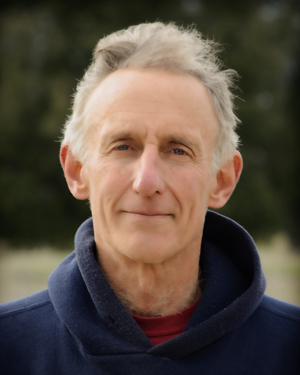
Eric Davis, MS '72 DVM '77
International Animal Welfare Training Institute, Rural Veterinary Experience Teaching and Service
Eric Davis is recognized for his contributions and leadership in animal welfare and veterinary student training in rural veterinary services. Since founding the Rural Area Veterinary Services in 1995, a program of the Humane Society of the U.S., Davis has involved more than 70 veterinarians and 46 technicians in the program. Together, they have overseen 1,900 veterinary students who have completed the curriculum and field work in 32 U.S. communities, including many tribal entities, and in a number of other countries. Davis was also deployed to Louisiana during hurricanes Katrina and Rita in 2005 and provided leadership and patient care in the organizing of emergency animal sheltering.
Davis, board-certified in veterinary surgery and internal medicine, served on the faculty at the University of Tennessee, where he trained veterinary students in surgery and medicine from 1994 to 2001. He also spent time as visiting professor at the University of Iowa (where he completed a large animal surgery residency) and Purdue University. He is an experienced practitioner, having owned the Redwood Equine and Farm Animal Practice earlier in his career and the Steinbeck Country Equine Clinic of Salinas.
Davis has returned to his alma mater and now works as an associate veterinarian with the International Animal Welfare Training Institute, a program of the School of Veterinary Medicine at UC Davis. He is developing training programs in emergency preparedness and instructs first responders to safely perform large animal rescues. Davis continues to volunteer as director of the organization Rural Veterinary Experience Teaching and Service, R-VETS, in underserved communities of the western United States, Mexico and Nicaragua while mentoring veterinary students interested in rural practice.
Davis previously received the 1999 AVMA Animal Welfare Award, the William Miles MD Award for Community Service in 2000, and the Thomas Jefferson Award for Community Service, also in 2000.
Davis is a resident of Davis, California.
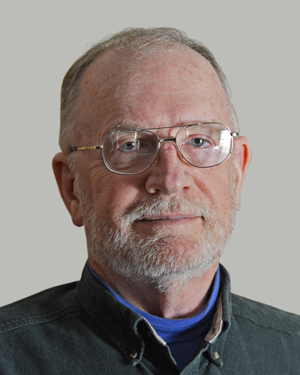
Charles Issel, DVM '69
Wright-Markey Chair of Equine Infectious Diseases, University of Kentucky, is honored for extraordinary research accomplishments and leadership in equine virology.
Issel became a diplomate of the American College of Veterinary Microbiologists in 1976 and has served in numerous veterinary research and academic positions. Notably, he had a short stint as a veterinary medical officer at the USDA Plum Island Animal Disease Center, where he worked on foreign animal diseases, particularly foot and mouth disease. From 1974 until 1990, he rose to the rank of professor of veterinary virology at Louisiana State University. Issel joined the University of Kentucky faculty in 1990 and holds the Wright-Markey Chair of Equine Infectious Diseases.
Issel’s veterinary career began with his DVM degree from UC Davis in 1969 and virology training at the University of Wisconsin. Along the way he has published nearly 200 scientific articles and made more than 200 other presentations that have substantially improved the knowledge and control of equine infectious anemia and related viral diseases. His research interests span from insect transmission of viruses, vaccine studies, epidemiology of vector-borne diseases, lentivirus-host interactions to viral diagnostics. He holds six patents related to diagnostics and vaccines for equine infectious anemia.
Issel has received numerous research awards, including Gamma Sigma Delta Research Award, the Beecham Award for Research Excellence, the First Mississippi Corporation Award for Research Excellence, and the Aesculapian Lectureship.
Issel has served as a scientific reviewer for USDA-APHIS and the Grayson Jockey Club. He has also consulted with the National Institutes of Health, the Bill and Melinda Gates Foundation, the Texas Equine Health Fund and the Irish Thoroughbred Breeders Association. Issel is a recipient of the 2003 Kentucky Colonel Award, the highest honor of the Commonwealth of Kentucky awarded by the governor, for his accomplishments and outstanding service to the state.
Issel is a resident of Lexington, Kentucky.
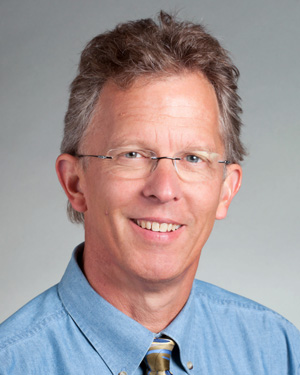
Richard Nelson, Residency '80-'82
Small Animal Medicine and Associate Director, William R. Pritchard Veterinary Medical Teaching Hospital
The school acknowledges Nelson for distinguished scholarship in veterinary endocrinology and innovation in veterinary education. Throughout his career, Nelson has sustained a high degree of scholarship in canine and feline endocrinology research, teaching and service through patient care and consultations with veterinarians throughout the country. He has been an outstanding mentor to residents in internal medicine, a strong contributor to continuing professional education nationally and internationally and an inspired administrative leader through multiple positions and major initiatives.
A DVM graduate of the University of Minnesota, Nelson’s residency took place at the William R. Pritchard Veterinary Medical Teaching Hospital 1980-1982. Early in his career, Nelson served on the faculty of the Purdue School of Veterinary Medicine from 1982 until 1989, where he rose to associate professor. He returned to UC Davis in 1989 and now directs Small Animal Clinical Services. He served as chief of the internal medicine service for five years and as chair of the Department of Medicine and Epidemiology.
Nelson is board certified by the American College of Veterinary Internal Medicine. He has regularly contributed to scholarship in endocrinology, having characterized several endocrine disorders in dogs and cats and published more than 115 scientific articles about canine and feline diabetes and other topics. He co-authored the prestigious textbooks, Canine and Feline Endocrinology and Reproduction and Small Animal Internal Medicine. He has also raised awareness of veterinary endocrinology as a co-founder of the Society for Comparative Endocrinology.
Nelson has been called “an ambassador for academic veterinary medicine.” He has trained and mentored more than 50 resident veterinarians in the specialty of internal medicine and has long been a sought-after lecturer at continuing education events throughout the world. Since 2006 he has chaired the committee responsible for transforming the professional curriculum at UCD and continues to develop the new curriculum as a member of this team. Nelson has been recognized by Purdue University and UC Davis for distinguished teaching.
Nelson lives in Davis.
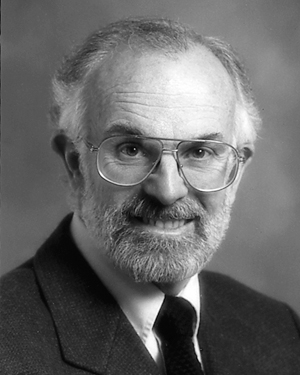
Charles Plopper, PhD '72
UC Davis School of Veterinary Medicine
Plopper is recognized for exceptional leadership and accomplishment in research, graduate education and administration in the school. Plopper’s career spanned 30 years of excellence that included two terms as chair of the Department of Anatomy, Physiology and Cell Biology, a distinguished research record in the field of respiratory disease and a dedication to mentoring a generation of young scientists.
After earning his PhD in anatomy in 1972, Plopper spent three years in the military, working at the US Army Institute of Medical Research and Nutrition Laboratory and in the Letterman Army Institute of Research. He took positions at University of Hawaii, University of Kuwait and the National Institute of Environmental Health Sciences in North Carolina before finding his academic home at UC Davis in 1979.
He became leader of the large and productive pulmonary research group, becoming involved in recruitment of more than a dozen faculty and 150 graduate students investigating aspects of asthma, allergens, air pollution (ozone) and other aspects of lung development and disease. Plopper’s defining research on airways has been fundamental in evaluating therapies in the monkey model of asthma and has led to human clinical trials. This work and his mentorship of scientists will continue to benefit public health for years to come.
Plopper has been an adviser to the National Institutes of Health, the US Environmental Protection Agency and the California Environmental Protection Agency. He was a visiting scientist at the National Cancer Institute.
Plopper has been recognized for career achievement by the Society of Toxicology and received the Pfizer Award for Research Excellence twice at UC Davis. He has also received the Norden Distinguished Teaching Award from the School of Veterinary Medicine and the Meritorious Teaching Award from the University of Hawaii.
Plopper is a resident of Hamilton Branch.
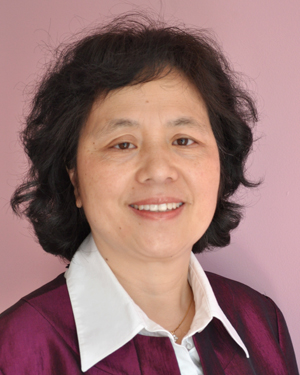
Shaohua Zhao, MPVM '88, PhD '91
US Food and Drug Administration, Center for Veterinary Medicine, Maryland
Zhao is honored for exceptional contributions to protecting public health through food safety research, surveillance, training and education. Zhao has contributed through research and service activities, peer-reviewed literature, and leadership within and outside of the FDA. She is a senior research microbiologist in the Division of Animal and Food Microbiology, Office of Research at FDA/CVM, and leads the research program of the National Antimicrobial Resistance Monitoring System.
Zhao earned her Master of Preventive Veterinary Medicine degree in 1988 and her doctoral degree in Comparative Pathology in 1991at the School of Veterinary Medicine, where she began using PCR methods to diagnose disease. At the University of Georgia, she developed PCR assays to detect E. coli 0157:H7 in food. She held positions at the University of Maryland and with Kirkegaard & Perry Laboratories. In 1998, she joined the new Division of Animal and Food Microbiology at the FDA Center for Veterinary Medicine.
Zhao is an expert on the molecular epidemiology of foodborne diseases as well as DNA subtyping methods; both are important tools for foodborne outbreak investigation and identification of the source of outbreaks. Leading the PulseNet database at FDA/CVM, she consults for US and foreign agencies, industry organizations and public interest groups. PulseNet enables public health agencies to monitor and respond to foodborne illness outbreaks as quickly as possible. Zhao’s research has made a significant impact on federal regulatory policy regarding microbial and antimicrobial issues.
She provides training and technical support to FDA field labs, academics and foreign scientists. Zhao has served as FDA’s representative to the World Health Organization- Global Foodborne Infections Network and was instrumental in introducing laboratorybased surveillance for foodborne diseases in China.
Zhao has received numerous awards for her contributions and service to the FDA and the scientific community. In 2008, she received a Scientific Achievement Award, the highest honor given to the top researcher of the year by the FDA.
- 2011
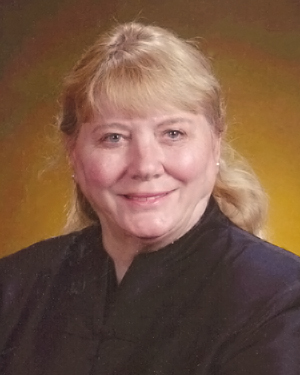
Linda L. Blythe DVM, ‘74, PhD ‘79
A professor at the Oregon State University College of Veterinary Medicine and a resident of Philomath, Oregon, Blythe is recognized for excellence in teaching and dedication to the veterinary medical profession and all the animals it serves.
Blythe earned her D.V.M. degree in 1974, completed a large animal internship in 1975, and received a Ph.D. in comparative pathology in 1979, all at UC Davis School of Veterinary Medicine.
Blythe is a founding faculty member of Oregon's veterinary school, where she also served in leading administrative roles. Blythe's teaching focuses on neuroscience and sports medicine. She received the Carl J. Norden-Pfizer Distinguished Teaching Award in 1986 and 1992 in recognition of her ability to combine basic instruction with clinical application for her students.
Blythe's research into equine neurological diseases led to her discovery of equine temporohyoid osteoarthropathy, a disorder that can predispose horses to fracture along the base of the skull or one of the bones of the throat. She also explored the role of vitamin E in equine degenerative myeloencephalopathy, a now preventable disease of young horses. Blythe is also interested in greyhounds and canine physical rehabilitation; she is the lead author of two books on the care of the racing and retired greyhound. Blythe received the Pfizer Research Award in 1996 and was inducted into the Greyhound Hall of Fame in 2010. She has authored more than 100 scientific articles.
Among her contributions to the profession, which include involvement in the Oregon Veterinary Medical Association, the Association of American Veterinary Medical Colleges and the National Board of Veterinary Medical Examiners, Blythe has been instrumental in the development of a new specialty organization, the American College of Veterinary Sports Medicine and Rehabilitation.
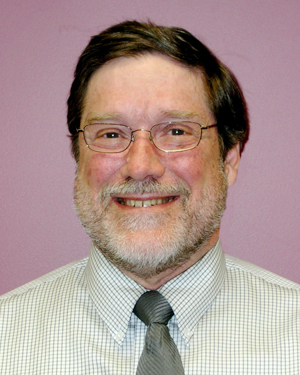
Robert Hardy, DVM ‘69
A professor at the University of Minnesota College of Veterinary Medicine based in St. Paul, Hardy is recognized for his contributions to veterinary education and small animal internal medicine.
Hardy graduated with a D.V.M. degree in 1969 from the UC Davis School of Veterinary Medicine, where he also earned his bachelor's degree.
As a veterinary educator for 40 years, Hardy has often been singled out for his "tremendous dedication to clinical teaching" and for his inspiration to graduates who have followed him into the field of small animal internal medicine. He served as head of the division of small animal medicine at the University of Minnesota from 1976 to 2006.
Hardy has contributed more than 40 scientific articles and 60 book chapters to the body of knowledge in the field of small animal medicine. He has furthered specific discoveries related to liver disease and to inherited copper disease of Bedlington terrier dogs.
Hardy was named 2003 Veterinarian of the Year by the Minnesota Veterinary Medical Association. Among his contributions to the profession are his early role in the development of the discipline of small animal internal medicine and his leadership in the establishment of the American College of Veterinary Internal Medicine, for whom he has served as president and chairman of the board.
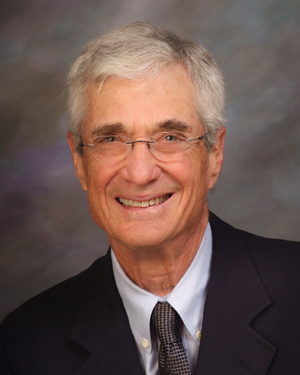
Dwight C. Hirsh III, DVM ‘66
Professor and Chief of Microbiology, William R. Pritchard Veterinary Medical Teaching Hospital
A retired professor from the UC Davis School of Veterinary Medicine and a resident of Davis, California, has received the school's highest honor in recognition of outstanding contributions to veterinary medical student education and clinical diagnostic services, particularly in the field of veterinary microbiology.
Hirsh earned his D.V.M. degree from UC Davis School of Veterinary Medicine in 1966, after which he devoted his career to the "public practice" of veterinary medicine as a faculty member in the school.
Hirsh's teaching ability over the years has been recognized by students, faculty and campus alike. He is a two-time recipient of the Carl J. Norden-Pfizer Distinguished Teaching Award (1980 and 1992). He received the UC Davis Academic Senate Distinguished Teaching Award in 1995 and has been singled out at the national level as recipient of the 1999 Student American Veterinary Medical Association Teaching Excellence Award.
Hirsh published more than 130 peer-reviewed articles and 75 book chapters that have produced wide-ranging impacts in the field of veterinary microbiology. He has served as main editor for Veterinary Microbiology, a primary textbook in the field.
Hirsh's extensive expertise was put to use as the chief of the Microbiology Service and as infection control officer in the William R. Pritchard Veterinary Medical Teaching Hospital.
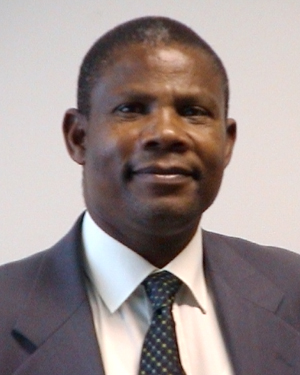
Kereng Masupu, MPVM ‘90
Founding executive secretary of Champions for an HIV/AIDS-Free Generation, Gaborone, Botswana.
Masupu earned the Master of Preventive Veterinary Medicine degree from the School of Veterinary Medicine in 1990. The program trains veterinarians to investigate and evaluate diseases in animal populations and to design, evaluate and implement disease control or other veterinary services programs, including programs in veterinary public health. Masupu is recognized for his leadership in the prevention and control of HIV/AIDS in Botswana, a country severely impacted by the epidemic.
Early in his career, while serving as the deputy director of Botswana Department of Veterinary Services, Masupu led a successful effort to eradicate contagious bovine pleuropneumonia in that country.
Unusual for a veterinarian, however, Masupu has spent much of his career working on human disease. As deputy head and acting head of the National AIDS Coordinating Agency, he established and managed all governmental programs of national HIV/TB strategic information and surveillance programs. As a result of this work, Botswana has become a leader among African countries for its percentage of HIV-positive people on treatment, percentage of HIV-positive mothers on chemoprophylaxis, and percentage of HIV-positive individuals who know their serostatus. He designed similar programs in Zambia and Namibia.
As a volunteer, Masupu has been recognized for setting up community farming groups for resource pooling and for supporting community home-based care organizations such as the Gabane and Mochudi community home-based care groups.
Masupu resides in Mochudi, Botswana.
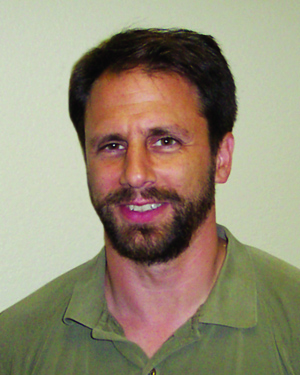
Paul Pion, Resident ‘87
President and co-founder of Veterinary Information Network, Inc.
Pion is acknowledged of his role in the discovery of taurine insufficiency, which causes feline dilated cardiomyopathy, and for connecting the veterinary community through the Veterinary Information Network, thereby impacting contemporary veterinary medicine.
Pion completed a residency in veterinary cardiology in 1987 at the William R. Pritchard Veterinary Medical Teaching Hospital.
His career has followed two distinct tracks. First, he has served as a clinical veterinary cardiologist and clinical researcher in the university and private practice setting. It was during his residency in this field that he and a UC Davis team of heart and nutritional specialists discovered that a lack of taurine in the feline diet led to a fatal heart ailment, feline dilated cardiomyopathy. Based on this research, the pet food industry began adding more of this essential ingredient to cat food, saving the lives of countless animals.
Pion is one of the earliest adopters of online technology for connecting the veterinary community through the Veterinary Information Network (VIN). The network grew out of a forum where veterinarians helped pet owners on America Online. Begun in 1991, VIN now serves more than 47,000 veterinarians and veterinary students around the world with online databases, message boards, rounds, libraries, continuing education courses and other clinical and professional resources.
Pion has served as an instructor at the UC Davis School of Veterinary Medicine, presented more than 100 continuing education presentations throughout the world, reviewed numerous professional publications and participated in several professional societies. He has received special recognition from the American Animal Hospital Association, Ralston Purina, the National Heart, Lung and Blood Institute, and the American College of Veterinary Internal Medicine Forum.
- 2010
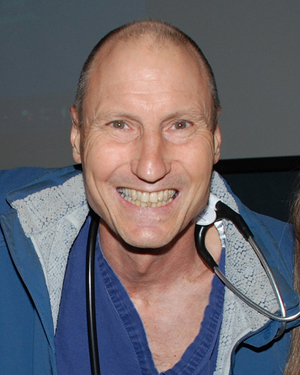
Kenneth Drobatz, DVM '85
Drobatz, of Landsdowne, Pa., has received the honor in recognition of leadership in veterinary emergency service and critical care as well as his dedication to teach and inspire students.
Drobatz is a professor and chief of critical care at the University of Pennsylvania School of Veterinary Medicine, where he is also director of the emergency service of the Matthew J. Ryan Veterinary Hospital and associate chair for education in the Department of Clinical Studies—Philadelphia.
In these roles, he has contributed to the growth of the critical care specialty in veterinary practice. He has provided leading-edge training to veterinary students and specialists in the field. Drobatz also served the community as a member of the executive board of the Philadelphia Animal Care and Control Association.
Drobatz earned his Doctor of Veterinary Medicine degree from UC Davis in 1985. He completed an emergency medicine residency in 1989 at the University of Pennsylvania, where he also earned a Master of Science in Clinical Epidemiology (M.S.C.E.) in 2002 from the University of Pennsylvania School of Medicine. He is a diplomate of the American College of Veterinary Internal Medicine and the American College of Veterinary Emergency and Critical Care.
Drobatz has written or edited many publications related to health emergencies such as trauma, electrolyte emergencies and respiratory emergencies in small animals. He has received several teaching awards, including the Norden Distinguished Teaching Award in 2002 and the Lindbach Foundation Award for Distinguished Teaching in 2003.
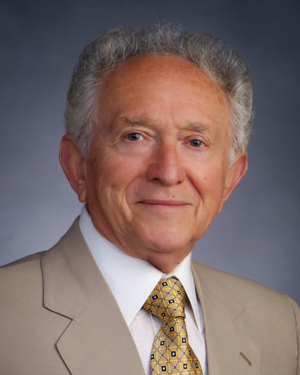
Constantin Genigeorgis, MS '63, PhD '66
Constantin Genigeorgis, of Sacramento, California and Thessaloniki, Greece, is being recognized for national and international contributions to veterinary medicine, food safety and public health.
Genigeorgis is an internationally known veterinary educator and food safety researcher and consultant.
A professor emeritus from the UC Davis School of Veterinary Medicine and the Aristotle University in Greece, Genigeorgis earned his Doctor of Veterinary Medicine degree from Aristotle University, Greece, in 1957. He obtained master's and doctoral degrees, in 1963 and 1966 respectively, in comparative pathology from UC Davis. He is a diplomate of the European College of Veterinary Public Health, which he co-founded. Among his distinctions are his recognition as Fellow of the Royal Society of Health, United Kingdom, in 1972, “Outstanding Teacher of Veterinary Public Health” by the American Association of Food Hygiene Veterinarians in 1982, and military service as an officer in the Greek Army Veterinary Corps.
At UC Davis School of Veterinary Medicine, Genigeorgis served as a professor of food safety in the Department of Epidemiology and Preventive Medicine (now the Department of Medicine and Epidemiology), retiring in 1991. While at UC Davis, he developed many international professional collaborations, including his teaching programs at Aristotle University. He often consulted on food safety programs with Greece, the Pan American Health Organization, European Union food science organizations and the World Health Organization.
Since his "second" retirement from Aristotle University in 2000, Genigeorgis has been appointed to the governing board of Greece's first National Food Authority. He remains active in the Western Institute for Food Safety and Security at UC Davis, industry-based food safety training, and academic teaching and research at a number of Greek universities.
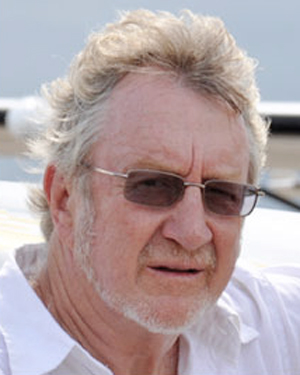
Michael D. Kock, MPVM '86
Kock, of Greyton, Western Cape, South Africa, has been recognized for outstanding contributions to wildlife health, conservation and management in the United States and Africa.
Kock is a senior field veterinarian for the Wildlife Conservation Society's Field Global Health Program, which is based in South Africa and takes him to projects in southern, central and eastern Africa.
He earned the Bachelor of Veterinary Medicine degree, equivalent to America's D.V.M. degree, from the Royal Veterinary College, University of London, in 1976. He is a member of the Royal College of Veterinary Surgeons. He completed a residency in soft tissue surgery at the University of Pennsylvania in 1980 and a residency in zoo and wildlife medicine at UC Davis School of Veterinary Medicine in 1982. He obtained a Master of Preventive Veterinary Medicine degree from UC Davis School of Veterinary Medicine in 1986.
With a basis in general veterinary practice and population health, Kock has built key skills and experience in wildlife conservation. He is involved in management, research, epidemiology, conservation medicine and ecosystem health. He is proficient in safe game capture, relocation and post-capture care. His efforts with the Zimbabwe national parks to relocate and dehorn critically endangered black rhinoceros helped focus world attention on poaching and illegal horn trade.
Promoting an integrated approach to the health of communities, livestock and wildlife, Kock has worked in mixed practice and wildlife health programs in the United States and abroad, including Qatar in the Middle East and remote areas of Cameroon, Zimbabwe and Botswana. His recent work with the Wildlife Conservation Society has allowed him to work in 12 African countries from Mozambique in the south to Sudan in the north.
Kock has written more than 60 scientific publications and designed creative outreach efforts emphasizing intercultural communication using theater, popular articles and photography.
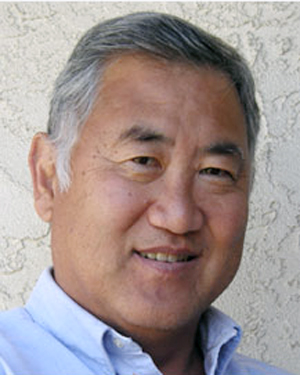
Terry Paik, DVM '74
Paik is being acknowledged for dedication to veterinary disaster preparedness, response and the relief of animal suffering.
He is the San Diego County Veterinary Disaster Response Coordinator and the Disaster Preparedness Committee Administrative Officer of the California Veterinary Medical Association.
Paik graduated from the UC Davis School of Veterinary Medicine in 1974.
He spent his private practice career at El Cajon Valley Veterinary Hospital as an equine practitioner and partner of the well-established practice. He provided contract services to the San Diego Wild Animal Park, San Diego Humane Society and the San Diego Department of Animal Control. During his career, Paik also volunteered veterinary services in underserved areas of Mexico, Europe and the Pacific Rim.
Paik has been active in business development, leadership and education with the Chambers of Commerce in El Cajon and East San Diego County. He taught veterinary technicians at Mesa College in San Diego and veterinary assistants in California's Regional Occupational Program, as well as consulting for the California Veterinary Medical Board.
Since retirement, Paik has stepped up his efforts in veterinary disaster relief. In 2001, Paik traveled to the United Kingdom to assist the Ministry of Agriculture, Fisheries and Food during the foot-and-mouth disease outbreak. He participated in disaster response after the World Trade Center attack in 2001 and after hurricanes Katrina, Rita and Ike. He assisted with animal evacuations during San Diego firestorms of 2003 and 2007. He is also a member of AVMA’s Veterinary Medical Assistance Team, National Veterinary Response Team (under the National Disaster Medical System) and San Diego Humane Society’s Animal Rescue Reserve.
Paik has previously been honored with the 2006 Lifetime Achievement Award from the San Diego Veterinary Medical Association and the 2009 Outstanding Service Award from the California Veterinary Medical Association.
Paik resides in El Cajon, California.
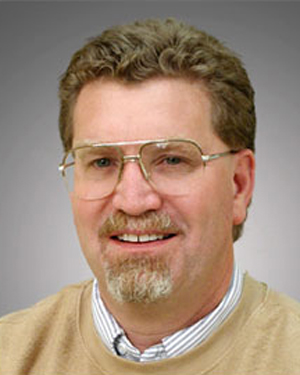
Jeff W. Tyler, MPVM '85, PhD '89
Tyler has been honored in recognition of outstanding contributions to global food animal medicine through teaching, research and service.
This is a posthumous award for Tyler, who died in 2009. He was a resident of Columbia, Missouri, and is survived by his wife and eight children.
Tyler was a professor, coordinator and instructional leader in the Food Animal Area at the University of Missouri College of Veterinary Medicine. He also served as director of clinical research and associate director of the Agricultural Experiment Station.
Tyler graduated from the University of Minnesota College of Veterinary Medicine in 1981 and practiced large animal medicine in Iowa before pursuing advanced training at the UC Davis School of Veterinary Medicine. At UC Davis, he earned a Master of Preventive Veterinary Medicine degree in 1985 and a Ph.D. in comparative pathology in 1989. He served on the veterinary faculty at Auburn University, Washington State University and the University of Missouri. Tyler was instrumental in the development of a Master of Public Health program at the University of Missouri. He also initiated a new Doctor of Livestock and Production degree program designed to serve developing countries, particularly in West Africa.
Active in several professional associations, including the American Association of Bovine Practitioners, the American Association of Veterinary Clinicians and state and national veterinary medical associations, Tyler was a diplomate and active member of the American College of Veterinary Internal Medicine. He also served on the North American Veterinary Licensing Examination Committee.
Tyler authored nearly 200 scientific publications and served as a reviewer for more than a dozen veterinary journals. He earned several research, teaching and clinical awards and fellowships, including the Smith Kline Beecham Award for Excellence in Veterinary Research. He received the 2003 AVMA Award for Livestock or Poultry Nutrition or Disease Research, and in the same year was honored by the American Feed Industry Association.
- 1979 - 2009
2009
David A. Jessup, MPVM ‘84
Linda J. Lowenstine, DVM ‘73
Douglas Mader, DVM ‘86, Res ‘88
M.D. (Mo) Salman, MPVM ‘80
2008
Gregory L. Ferraro, DVM ‘71
Michael Kotlikoff, PhD ‘84
Bill Lee Lasley, PhD ‘72
John E. Madigan, DVM ‘75
Roger S. Newton, PhD ‘80
Randall H. Scagliotti, DVM ‘73
2007
Denny G. Constantine, DVM ‘55
N. James MacLachlan, MS ‘79, PhD ‘82
Michael J. McCloskey, DVM ‘76
Bradford Smith DVM, ‘70
Alice M. Wolf DVM, ‘76
2006
James N. Moore, DVM ‘74, PhD ‘80
Marguerite Pappaioanou, DVM ‘72, MPVM '76, PhD ‘82
Dr. John Pascoe, BVSc ‘75, PhD ‘86
2005
Russell R. Burton, DVM ‘56, PhD ‘70
Bradley W. Fenwick, DVM ‘81, PhD ‘85
Eugene P. Steffey, VMD ‘67, PhD ‘73
2004
Robert (Bob) BonDurant, DVM ‘74
Bernard Feldman, DVM ‘62
Connor Jameson, DVM ‘68
2003
Mitchell Bush, DVM ‘65
Gerald V. Ling, DVM ‘65
2002
Hugh B. Norris, DVM ‘57
Jerry R. Gillespie, DVM ‘61, PhD ‘65
2001
James C. DeMartini, DVM ‘66, PhD ‘72
Edward C. Feldman, DVM ‘73
Peter Quesenberry, DVM ‘78, MPVM ‘91
2000
Alex Ardans, DVM ‘65
Martin R. Dinnes, DVM ‘66
1999
Richard E. Breitmeyer, DVM ‘80, MPVM ‘90
Donald V. Cramer, DVM ‘66
1998
Rick M. Arthur, DVM ‘76
Stephen W. Barthold, DVM ‘69
Terrell A. Holliday, DVM ‘53, PhD ‘65
1997
Robert H. Baker, DVM ‘54
Elizabeth Arnold Stone, DVM ‘76
1996
Douglas J. Herthel, DVM ‘71
Bennie I. Osburn, PhD ‘65
Stephen W. Russell, DVM ‘66
1995
Craig E. Greene, DVM ‘73
Jiro Jerry Kaneko, DVM ‘56, PhD ‘59
James W. Ticer, DVM ‘62
1994
George H. Cardinet, III, DVM ‘63, PhD ‘66
Arthur I. Hurvitz, PhD ‘67
Alice E. Villalobos, DVM ‘72
1993
Donald L. Dungworth, PhD ‘61
Howard A. (Hap) Paul, Res ‘83
Walter S. Tyler, PhD ‘56
1992
Michael R. Floyd, DVM ‘61
Tilahun D. Yilma, DVM ‘70, PhD ‘77
1991
Werner P. Heuschele, DVM ‘56
Donald J. Klingborg, DVM ‘72
1990
Arthur O. Hazarabedian, DVM ‘59
Hyram Kitchen, DVM ‘56
Patton L. Smith, DVM ‘56, MPVM ‘68
1989
Jack W. Morse, DVM ‘60
N. Edward Robinson, PhD ‘72
1988
Frederick A. Murphy, PhD ‘64
1987
Myron E. Essex, PhD ‘70
Niels C. Pedersen, DVM ‘67
Gordon H. Theilen, DVM ‘55
1986
Dan R. Evans, DVM ‘60
Bud C. Tennant, DVM ‘59
1985
Ronald D. Hunt, DVM ‘59
1984
Leslie R. Douglas, DVM ‘56
C. Larry Lippincott, DVM ‘57
1983
Leland E. Carmichael, DVM ‘56
1982
Joe R. Held, DVM ‘55
John B. Shirley, DVM ‘52
1981
Charles E. Cornelius, DVM ‘53, PhD ‘58
1980
Oscar W. Schalm
1979
James L. Bittle, DVM ‘53
